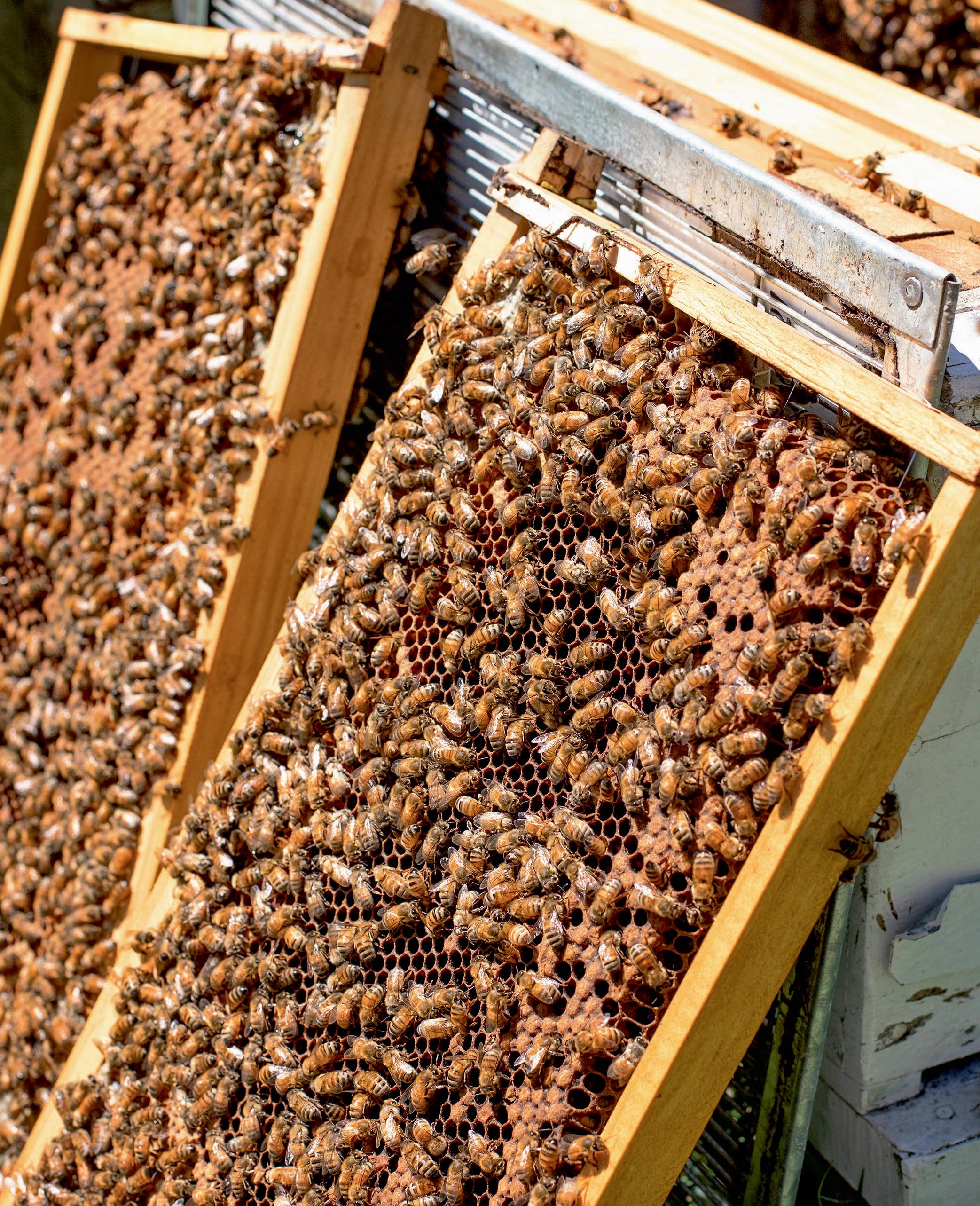


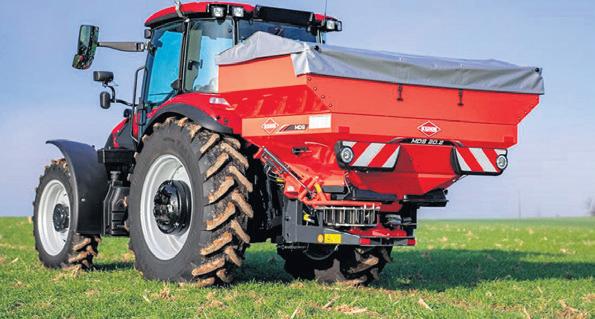

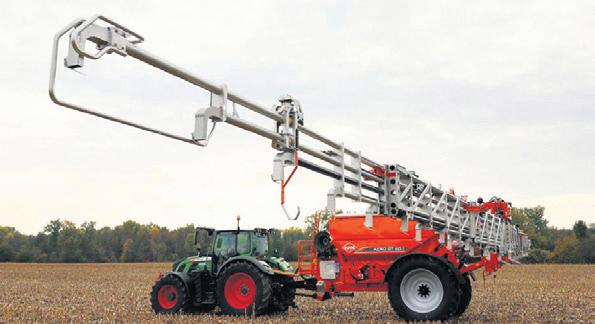
AUGUST 2023 Magazine Antioxidant ‘bee glue’ creates buzz PAGES 20-21 Lot 129 Tocumwal Rd, Newell Hwy, Finley Ph: 03 5883 4560 Mob: 0427 734 013, Email: agtrade@bigpond.com YOUR AUTHORISED KUHN DEALER FOR NORTHERN VICTORIA AND SOUTHERN NSW. 24/7 PARTS AND REPAIRS AVAILABLE.
Advertising & Editorial Deadlines
September Edition:
August 25, 2023
October Edition:
September 22, 2023
November Edition:
October 20, 2023
December Edition:
November 17, 2023
February Edition:
January 26, 2024
March Edition:
February 22, 2024
April Edition:
March 22, 2024
May Edition:
April 26, 2024
June Edition:
May 24, 2024
July Edition: June 22, 2024
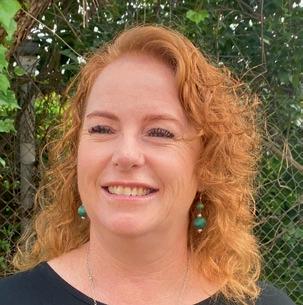


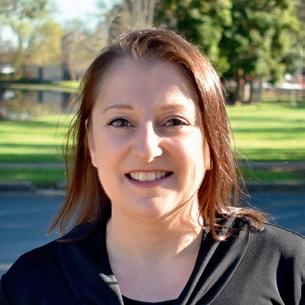
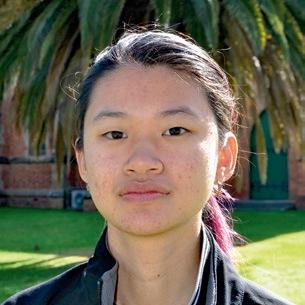
August Edition: July 26, 2024

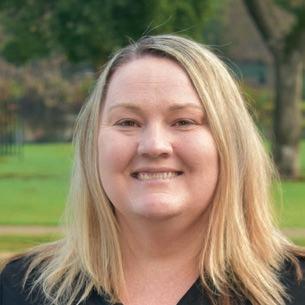
Information contained in this magazine is presented only after being carefully researched. However, there are differences in state and regional regulations and conditions. Farmers are asked to check with their own advisors. FARMtalk can assume no responsibility for the contents.
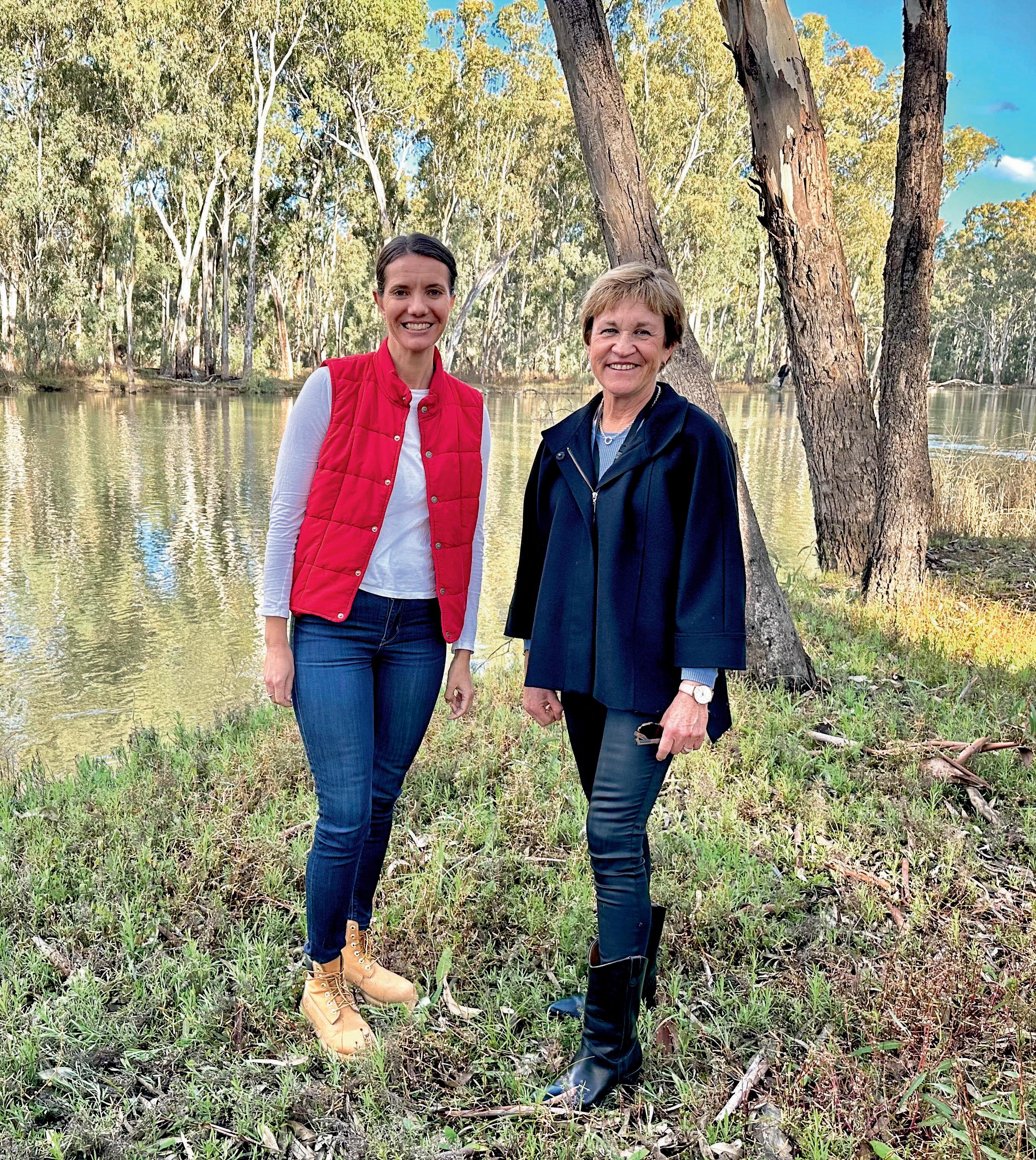


 Adrienne Hartnett CONTRIBUTOR
Leesa Muir GENERAL MANAGER & ADVERTISING
Jennifer Ho TRAINEE GRAPHIC DESIGN
Rebecca Flisher CREATIVE MANAGER
Zoe McMaugh CONTENT MANAGER
Kimberly Grabham CONTRIBUTOR
Sam Wake ADVERTISING
Adrienne Hartnett CONTRIBUTOR
Leesa Muir GENERAL MANAGER & ADVERTISING
Jennifer Ho TRAINEE GRAPHIC DESIGN
Rebecca Flisher CREATIVE MANAGER
Zoe McMaugh CONTENT MANAGER
Kimberly Grabham CONTRIBUTOR
Sam Wake ADVERTISING
PAGE 9
& EDITORIAL
SEE
FOR ADVERTISING
CONTACT DETAILS
Amber King SALES SUPPORT
Fleur Connick JOURNALIST
Krista Schade RIVERINE GRAZIER JOURNALIST
NSW Minister for Water Rose Jackson with NSW Member for Murray Helen Dalton.
Choke talks with water minister
“The Riverina region will not be accepting Federal Water Minister Tanya Plibersek’s proposed disastrous compulsory water buyback plans, in any way shape or form.”

Thatis the message NSW Member for Murray Helen Dalton impressed on NSW Minister for Water Rose Jackson during her visit to the local area last week.
Ms Jackson toured the Barmah Choke with Mrs Dalton and representatives of relevant authorities on Friday as part of talks on the Murray Darling Basin Authority and water policy.
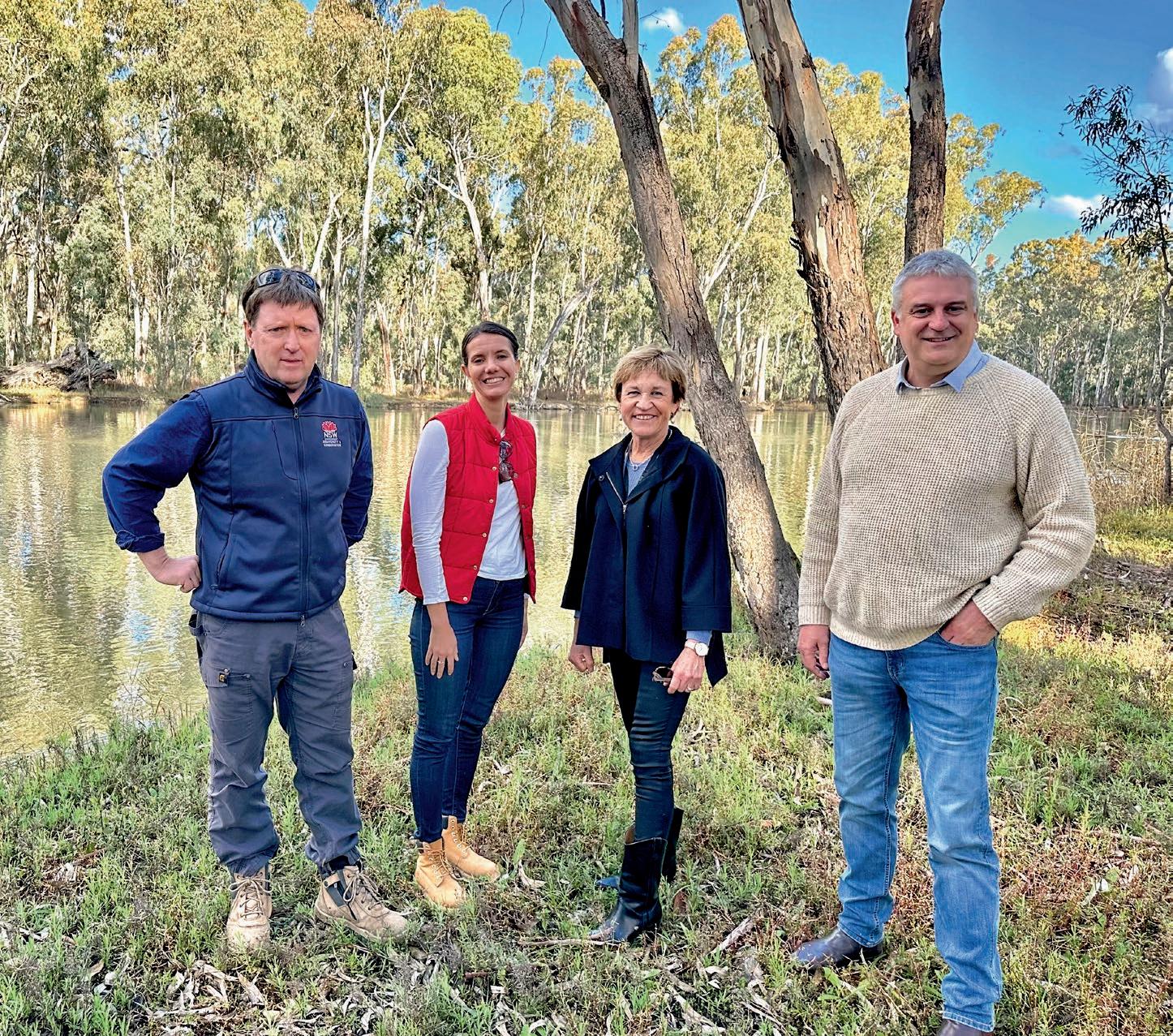
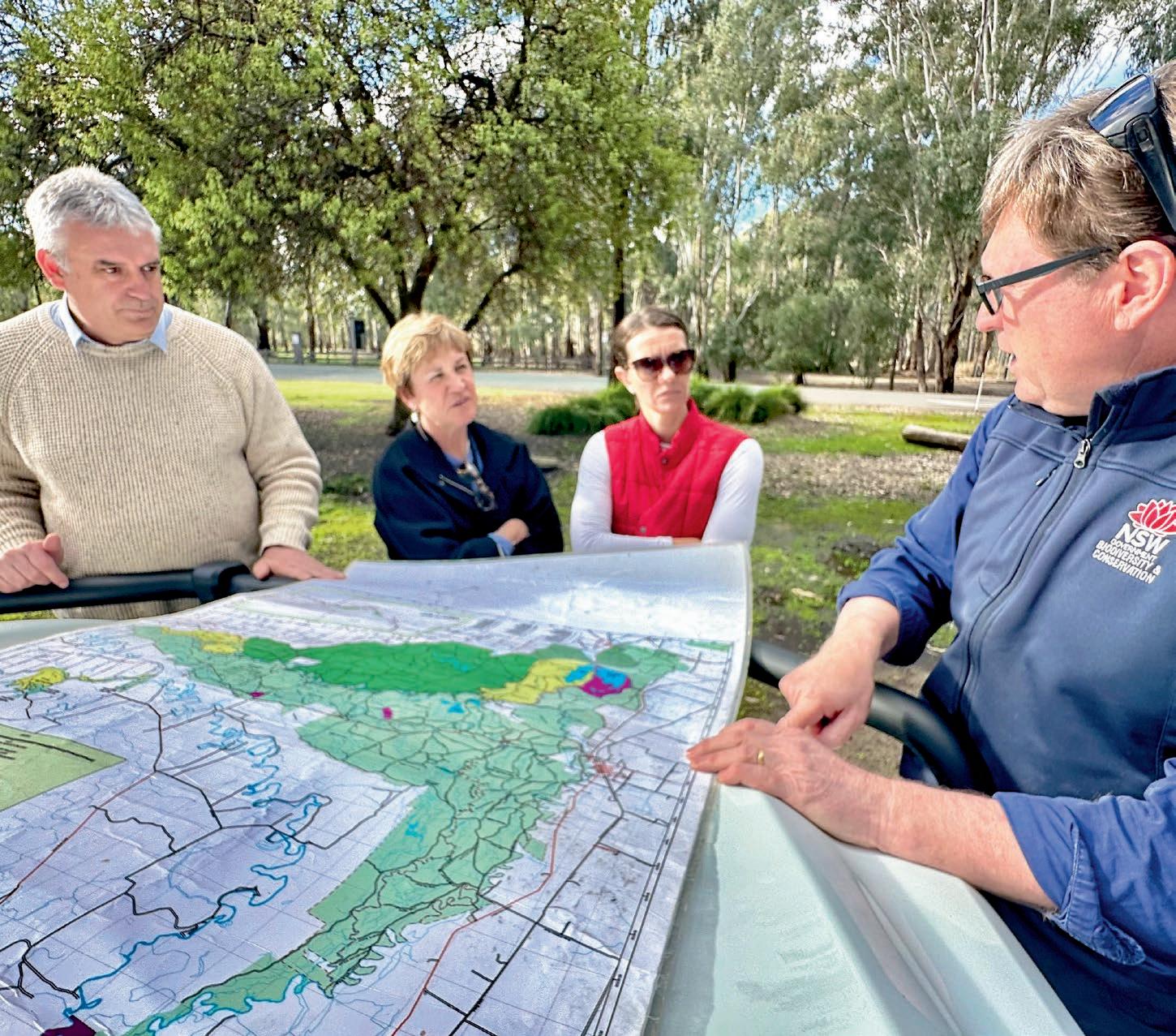
Mrs Dalton welcomed the discussion, during which the Labour water minister said she did not favour the buybacks approach either.
“We don’t want to see buy backs in New South Wales, that’s not our preference,” Ms Jackson said.
“We know that they have a negative impact on communities and (we) will always put the interests of New South Wales communities first.
“The good news, I think, is that there are a range of ideas on how we can deliver on the environmental outcomes under the Basin Plan without negatively impacting communities.
“We think there is a really positive story to tell, and it’s great to be out here in the community with Helen Dalton exploring those options.”
Mrs Dalton said the NSW Government’s range of ideas should include alternatives to provide water to South Australia.
“Every other option and alternative must indeed be considered,” Mrs Dalton said.
“And while the meeting was cordial, the minister was left in no doubt about the strength of feeling about this issue in the Riverina.
“Compulsory water buybacks must be off the table now and into the future.
“And I call for the region’s support in this top priority mission which is about water security, food security and the security of this region’s future as one of Australia’s agricultural powerhouses. There is no compromise on this issue.
“The New South Wales Water Minister and her government must stand firm against Plibersek’s compulsory water buyback disaster.”
FUELLING RURAL AUSTRALIA SINCE 1974 • On site fuel & lubricant delivery • Australia’s largest fuel card network • Bulk fuel storage & dispensing solutions • Bottom fill kits Deniliquin | Griffith | Hay 1300 PURTIL (1300 787 845) www.purtillgroup.com.au
AUGUST 2023 FARMtalk • 3
First Bendigo win
The McCulloch family from Deniliquin have long put themselves forward for competition at the Australian Sheep and Wool Show. This year, however, is the first time they have come away with a win.
Withthe support of Elders Deniliquin district wool manager David Wilson, the family submitted three fleeces to the prestigious Bendigo event in July.
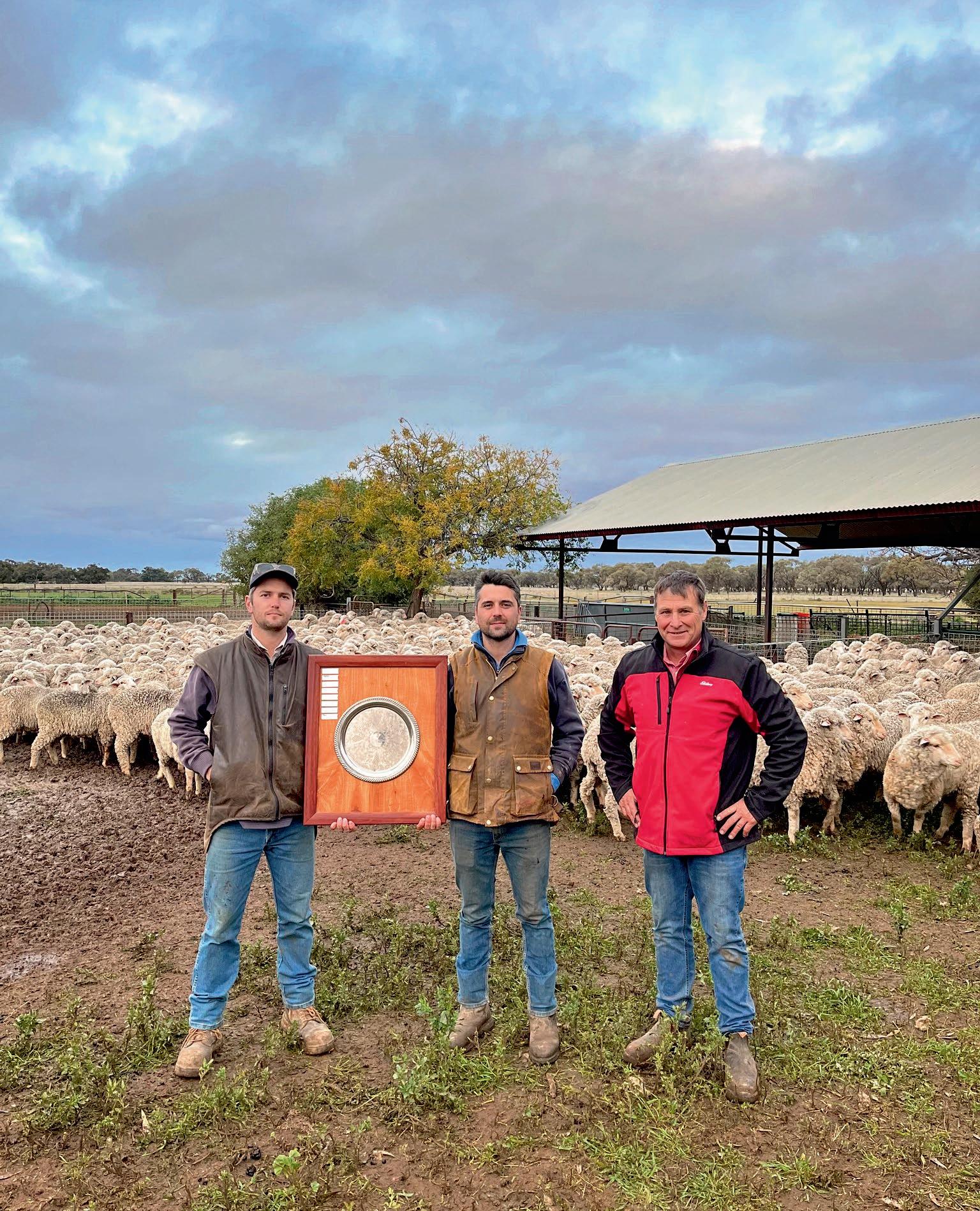
They claimed first place in the Australian Fleece Competition for Medium Commercial Ewe or Wether 20.5 - 22 micron.
They also claimed second place in the fine wool section with another fleece, and their third entry was third in the strong wool section.
“We usually send our best fleeces, and we’ve done that for many years, but we have never received a ribbon before,” Craig McCulloch said.
“There’s usually more than 400 entries.
“David Wilson from Elders liked the look of the wool we entered in the Deniliquin Show, so that’s what we sent.”
Craig runs McCulloch Pastoral with wife Wendy, son Rhys and his wife Cara, son Jordyn and his partner Jemma, and daughter Brittany and her husband James Kirby.
District Elders wool manager David Wilson (right) presenting the Cedar Grove trophy to Jordyn and Rhys McCulloch.
AUGUST
4 • FARMtalk
2023
He said their success at Bendigo this year is likely due to the increased efforts in improving the flock and wool output.
“We’ve reduced micron and whitened up the wool, and so we are producing fleece with a long staple clip which keeps the dirt and rain out,” he said.
“Alot of it is because of the consistent season.
“The feed intake was fairly consistent which helped with weight, and rather than being tender the wool was quite sound because of that consistent grazing.
“It’s also all about ram selection and classing.
“We have a self replacing flock, and would bring in about one or two stud rams a year.”
The McCullochs have been breeding Merino sheep for a number of years, with the family enterprise spread over a total of 22,500 hectares on ‘Bullawah Station’ north of Conargo and ‘Belaley’ on the Hay Plains.
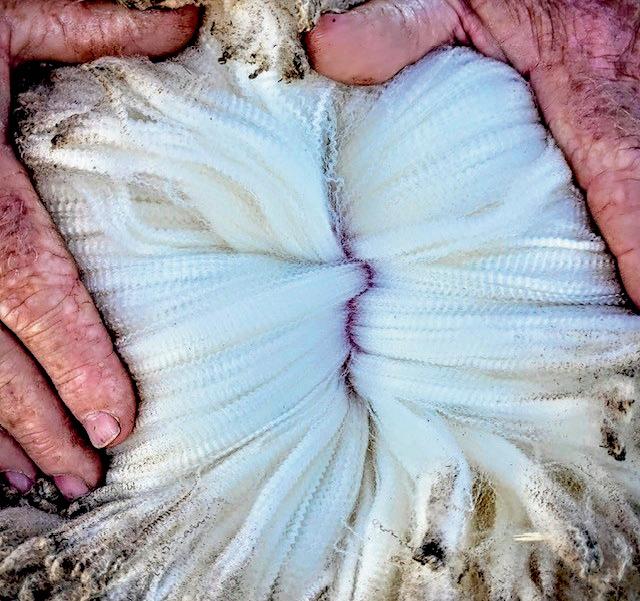
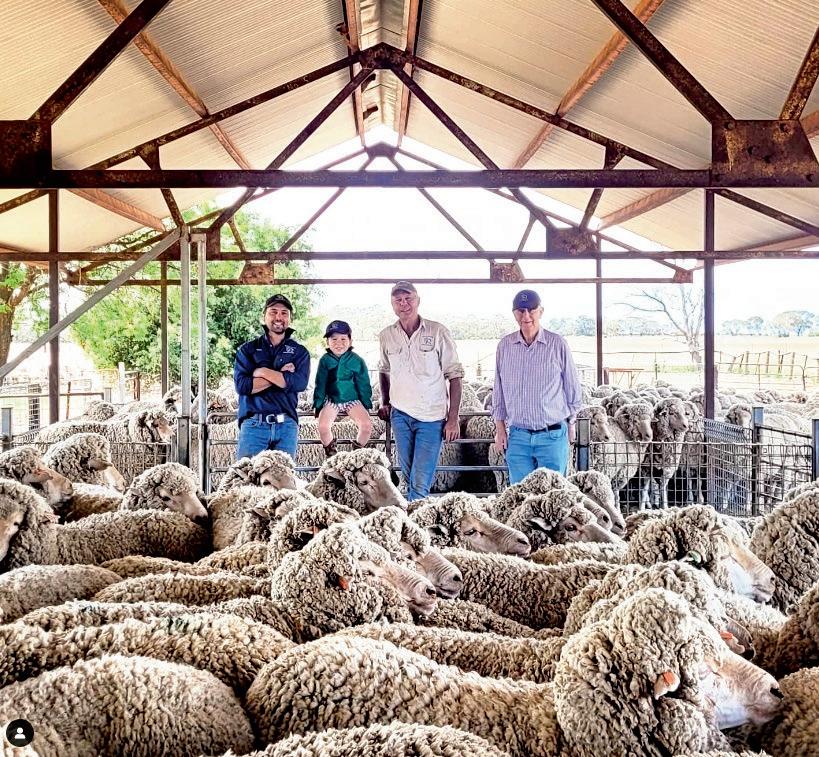
They have 13,500 head across the two properties, 9000 ewes for the self-replacing flock and 4000 joined to Poll Dorset rams for prime lamb production.
Craig says their ewes average 19.5 to 20 micron, and credits much of the Merino operations growth to the late Clyde McKenzie.
Before his death earlier this year, Clyde was Elders Deniliquin district wool manager and the McCullochs’ sheep classer.
“Clyde was involved in our operation for 30 years and taught us everything we know about wool,” Craig said.
“Firstly, he taught us to focus on wool cut and making sure each sheep is going to cut $40 to $60 worth of wool per head in an average year.
“We want bright, white, long-stapled, crimpy wool that is well-nourished to withstand the dust and rain.
“We also pride ourselves on the shearability of the sheep, they have to comb well.”
As the current Elders Deniliquin district wool manager, David said he was not surprised with the family’s success at the Australian Wool and Sheep Show.
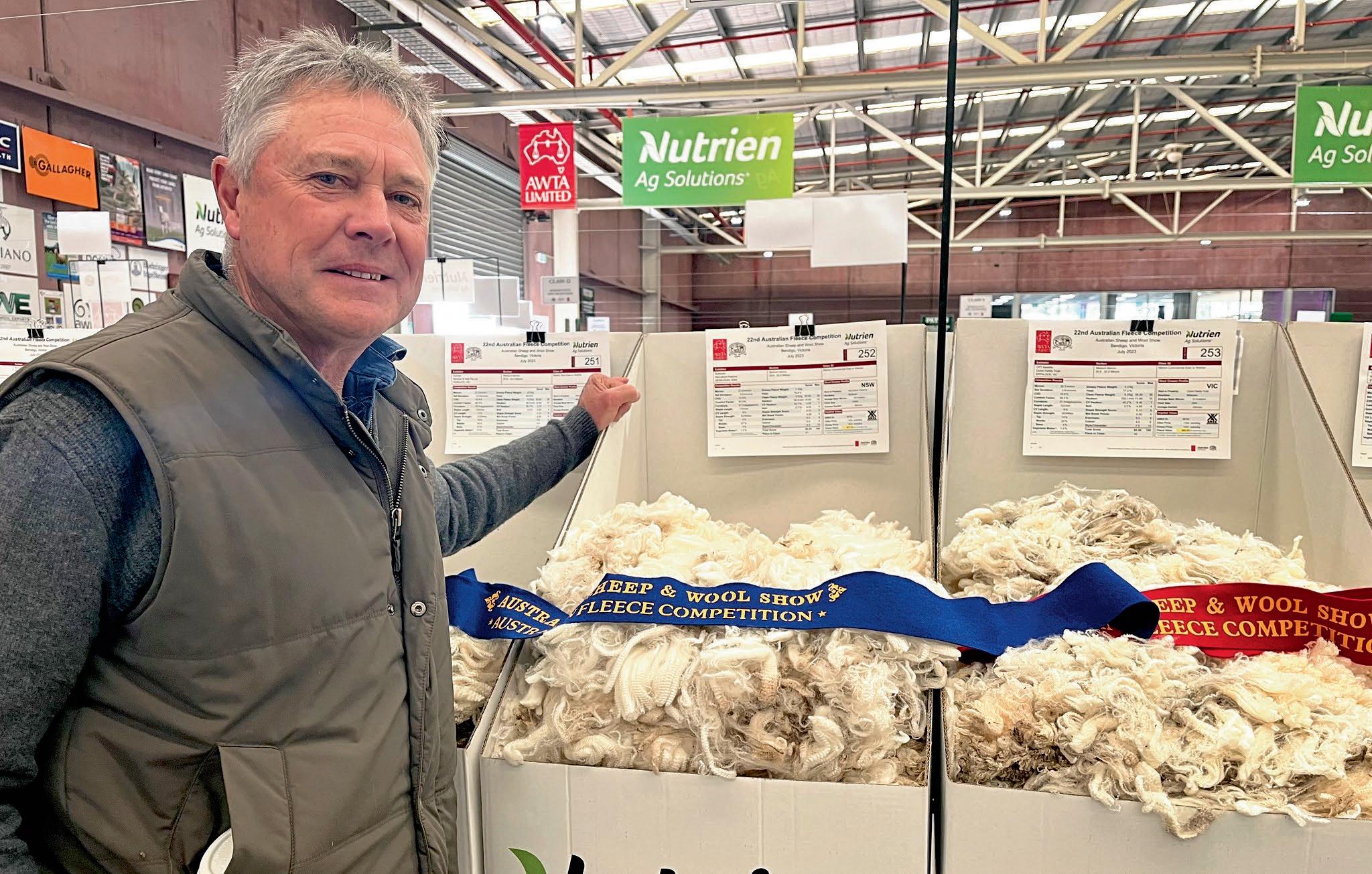
“They certainly have some quality wools in Riverina country,” he said.
“The fleeces (that went to Bendigo) are soft and stylish, have a good crimp and a lot of weight, and they were white and bright.
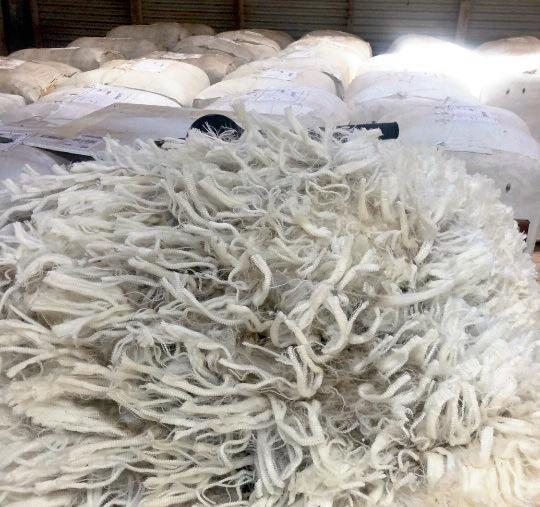
“And to get that result after being packed up for a while before the show was good too.
“The McCullochs have a very uniform flock.
“Clyde did the classing a lot of the time, and there are some really good genetics.
“So (the result at Bendigo) did not really surprise me.”
Before Bendigo, the McCullochs fleeces were standouts at the Deniliquin Pastoral & Agricultural Society’s annual Deniliquin Show in March. At that event, Bullawah Pastoral won the Cedar Grove trophy for Best Unhoused Ewe or Wether fleece not from a stud.
It’s not just wins the McCullochs brought home from Bendigo. They also purchased a Langdene Poll sire from the show.
“The Langdene ram is the first poll ram we have bought and we are looking forward to seeing what it can do in our flock,“ Craig said.
“We can get a lot of reproduction variability here, if we can breed some stable fertility traits in our ewes, hopefully we can buffer those tough years by managing their feed intake and stocking rates.”
The McCullochs are also long time clients of the McKenzie family’s Kilfeera Park Stud, in Lurg,
Victoria and have introduced Roseville Park genetics to their operations.
With improvement always the goal, the McCullochs introduced electronic identification device technology on the property for the first time last year. Not mandatory for sheep and goat producers until 2025, the eID contains a microchip and generally applied as an ear tag. The data contained within each eID can be scanned and recorded into the National Livestock Identification System (NLIS) database. This is the Australian system for identifying and tracing cattle, sheep and goats for disease control, food safety and market access.
The McCullochs are also using the device to record ewe performance. eID provides the ability for sheep producers, for example, to obtain individual animal data for such matters as health, fertility, genetics, weight gain and wool traits. Such data allows producers to make more informed management, monitoring and selection decisions thereby facilitating the ability to improve productivity and profitability.
“We put eID tags in our 2022-drop of Merino ewe lambs and when they were classed this season as one year-olds, we were able to start recording lifetime data on them,” Craig said.
“This year, we are going to put eID tags in the entire 2023-drop of lambs, including the crossbreds and Merino wether lambs to monitor liveweight gain.”
CONARGO, NSW
Craig McCulloch with McCulloch Pastoral’s
prize-winning fleece at the Australian Wool and Sheep Show.
“We want bright, white, long-stapled, crimpy wool that is wellnourished to withstand the dust and rain.”
AUGUST 2023 FARMtalk • 5
CRAIG MCCULLOCH
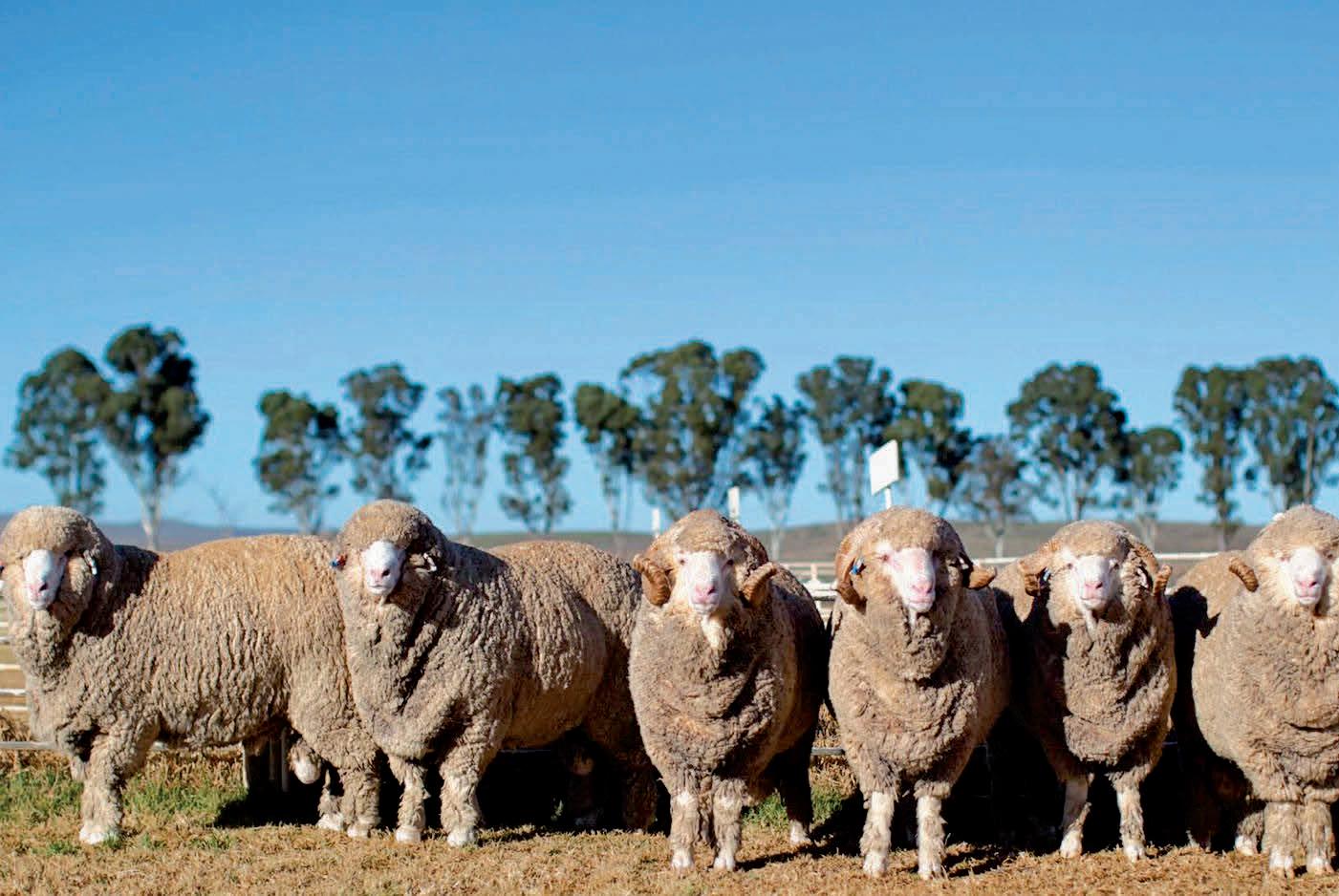

Thursday,
31 Wednesday,
FOR MORE INFORMATION & RSVP’S CONTACT DAVID WILSON 0407 644 296 OR DAVID RANKIN 0427 938 187 2023 ELDERS RIVERINA PRE-SALE ON FARM INSPECTIONS *Timing subject to change. Individual arrangements can be made through each stud. Woodpark Poll One Oak Poll The Yanko Willandra 8am 11am 1.30pm 3.30pm Hay Jerilderie Jerilderie Jerilderie ‘Narrawong’ Jerilderie Rd 1340 Liddles Lane Kidman Way North Coree Road Pooginook Avenel 9am 10.30am Jerilderie Wanganella 773 Four Corners Road Cobb Highway Caroonboon Wanganella/Poll Boonoke Goolgumbla 8.30am 10am 2pm Wanganella Conargo Jerilderie Moulamein Rd ‘Boonoke’ Conargo Rd Wilson/Goolgumbla Rd Margie - 0427 996 911 Tom - 0488 601 603 Bruce - 0428 867 124 Carol - 0429 934 616 Alistair- 0427 867 117 Ian - 0427 561 140 Angus - 0417 365 333 John - 0428 953 017 Colin - 0428 847 558
August
September 6 Friday, September 8
New faces at Elders
Millie Richardson has joined the team as rural products sales manager, while Claire Parks is the new real estate sales support officer.
Branch manager Michael McLeish said both “are a great fit with the team here and already know or have connections to most of our clients.”
“The recruitment of Millie and Claire into these key roles is an exciting step forward towards our goals of expanding our service and product offerings,” he said.
Millie started with Elders Deniliquin last month and is enjoying being back in the rural products space, and getting to know everyone and the product changes.
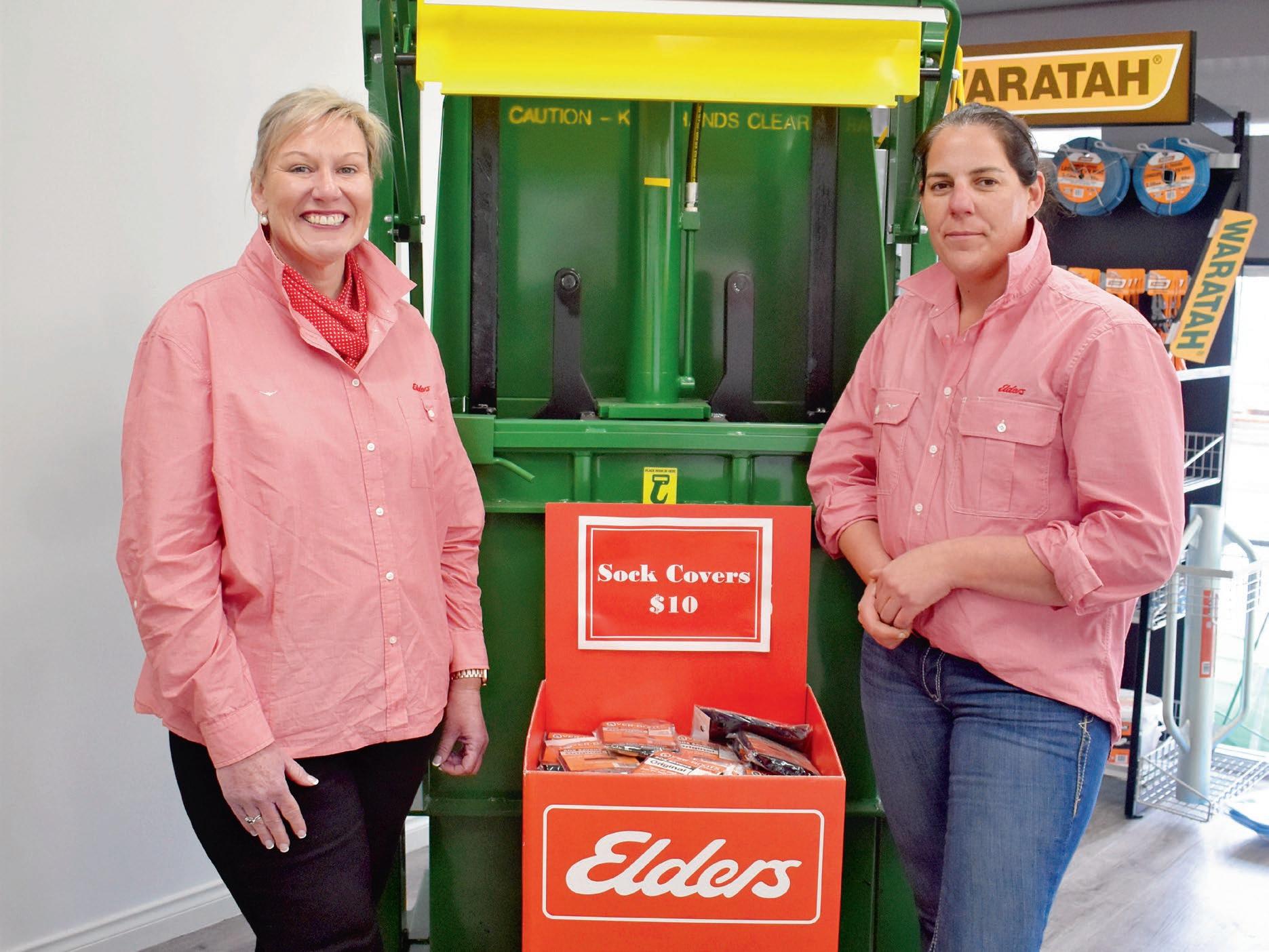
She will be managing the farm supplies department at Deniliquin.
Her background is in farm business finance, and she has a wealth of knowledge in rural products.
A local to the region and having worked in the agricultural sector for many years, she has a wellestablished understanding of the needs of clients within the local area.
“I like that the role allows me to assist clients with their business model and ensure we have the products they need for the production schedule,” she said.
Claire has been working with Elders real estate agent Matt Horne since May.
She has enjoyed getting into a role that has her working with clients and the team.
A familiar face in the Deniliquin district, Claire has a wealth of administration experience.
She said she was drawn to the role because it combines her administration skills, working with a great team and members of the community.
“This role allows me to be a link between our agent and clients and prospective clients.
“I really enjoy seeing people’s dreams come to reality, whether that is buying or selling.”
Labour hire legal action
LHA alleges that labour hire company Honey Bunny Global Pty Ltd subcontracted work to seven unlicensed labour hire providers, and that the company’s director, Surawadee Tanchote, was knowingly concerned in, or a party to the contravention.
The alleged contravention carries maximum penalties of more than $590,000 for a company and $145,000 for an individual — the highest monetary penalties applicable under the Labour Hire Licensing Act 2018 (Vic).
Under the act, the same maximum penalties apply whether a business provides unlicensed labour hire services, or engages another company to provide unlicensed services.
“Any business attempting to hide unlawful behaviour through subcontracting is on notice — the Labour Hire
Authority has sophisticated capabilities, we will identify you, and we will take action against you,” Labour Hire Licensing Commissioner Steve Dargavel said.
The prosecution is the latest in a series of recent LHA compliance and enforcement actions in Victoria’s horticulture industry, including:
• The largest ever total penalty for breaches of labour hire law in Australian history issued against a horticulture company and its director in December 2022, following a successful prosecution.
• Proceedings filed in the Supreme Court of Victoria in May 2023, alleging a company provided workers to pick fruit and vegetables in Victorian regions without a labour hire licence.
• Licensing actions taken against businesses operating in a range of Victorian regions.
The actions are part of an expanded program of compliance and enforcement by the regulator, targeting significant harms to workers and high-risk industries including horticulture, meat and poultry processing, commercial cleaning and security.
Under the Labour Hire Licensing Act 2018 (Vic), labour hire providers operating in Victoria must be licensed, and host businesses must only use licensed providers. The legislation was introduced following findings of widespread exploitation and unlawful activity in Victoria’s labour hire sector.
Businesses can check whether a labour hire provider is licensed, and subscribe to be notified of any changes in licence status, on the LHA website labourhireauthority. vic.gov.au.
Two new faces have joined the team at Elders Rural Deniliquin, although the community will be very familiar with one.
Claire Parkes and Millie Richardson have joined the Elders Rural Deniliquin team.
AUGUST 2023 FARMtalk • 7
The
Labour Hire Authority has commenced legal action alleging a Victorian company sourced workers for farms in the Cobram area through unlicensed labour hire providers.

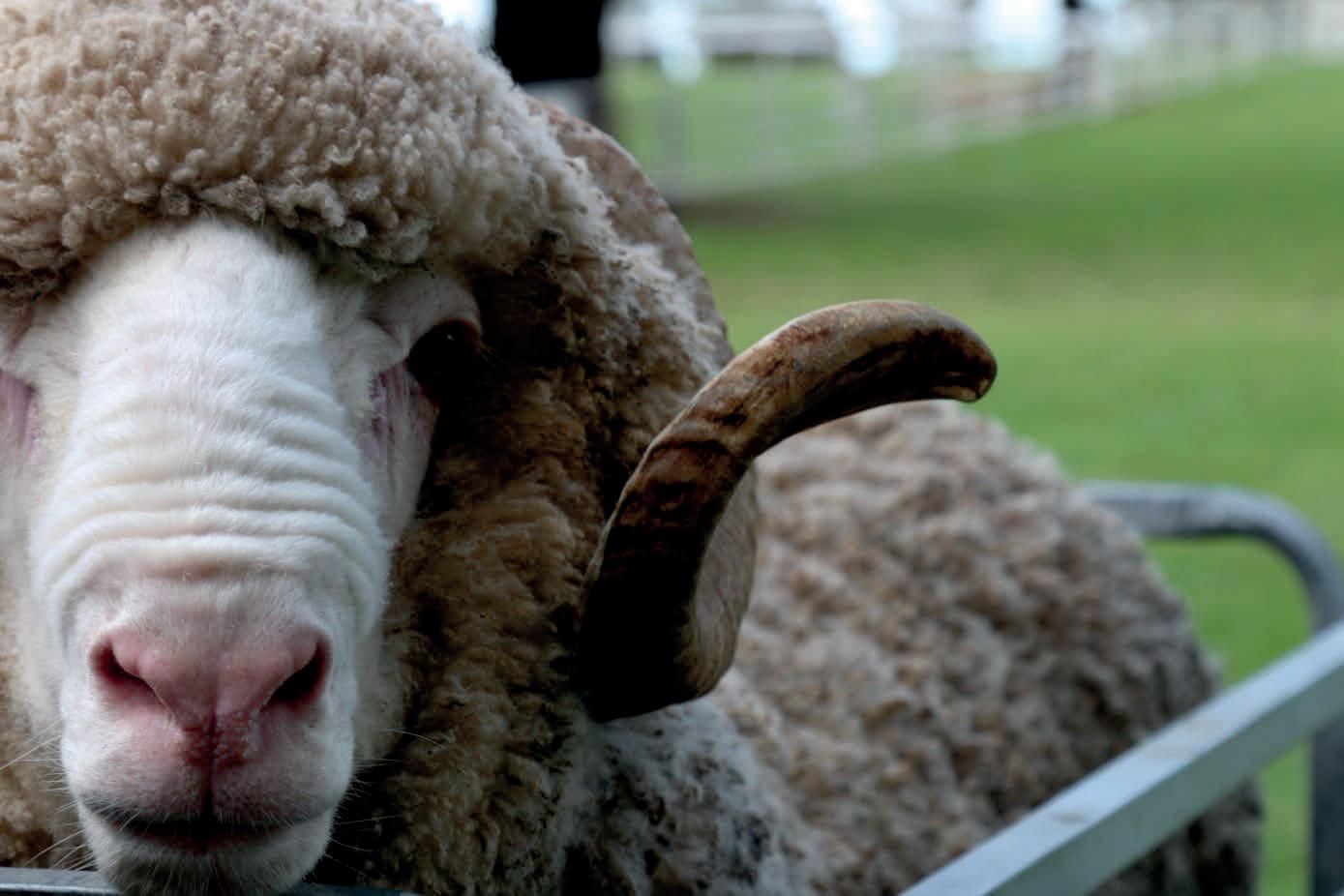
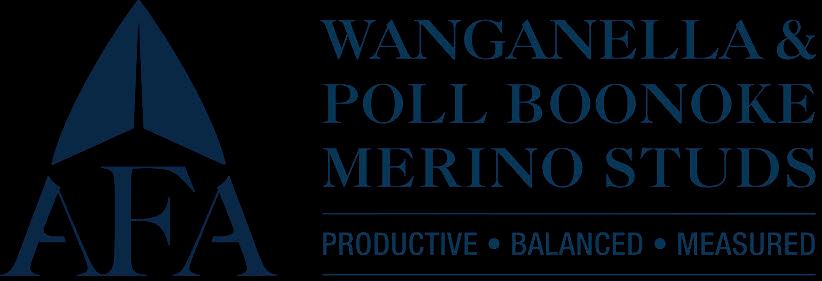
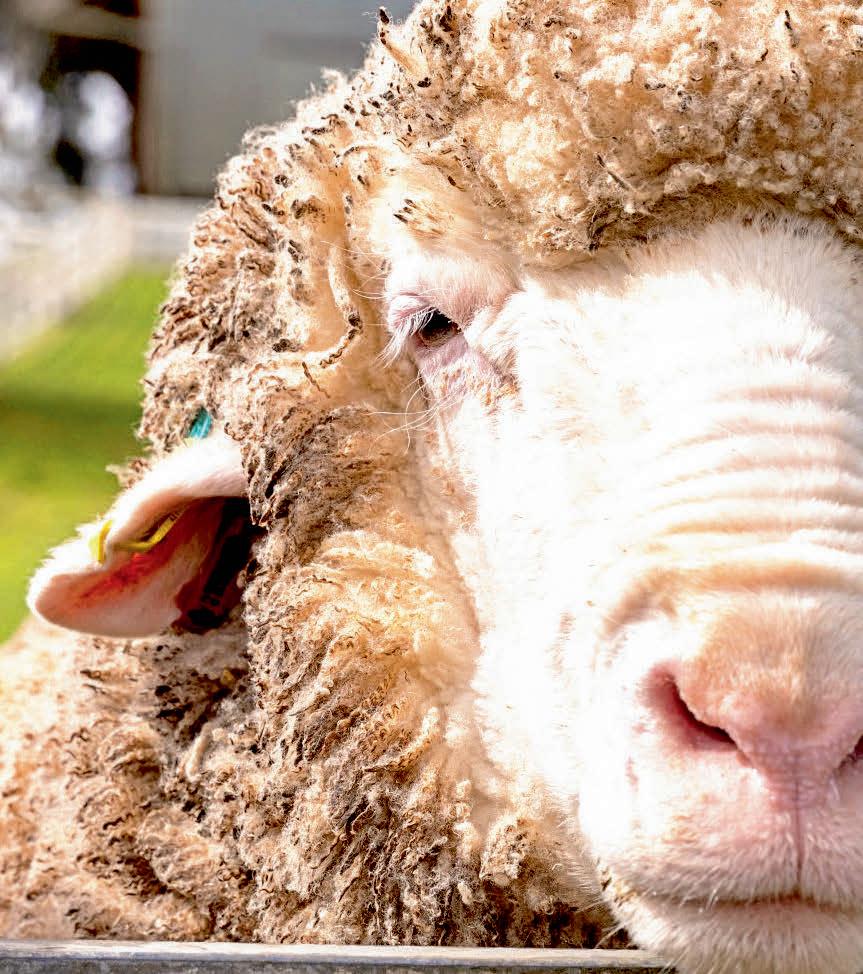
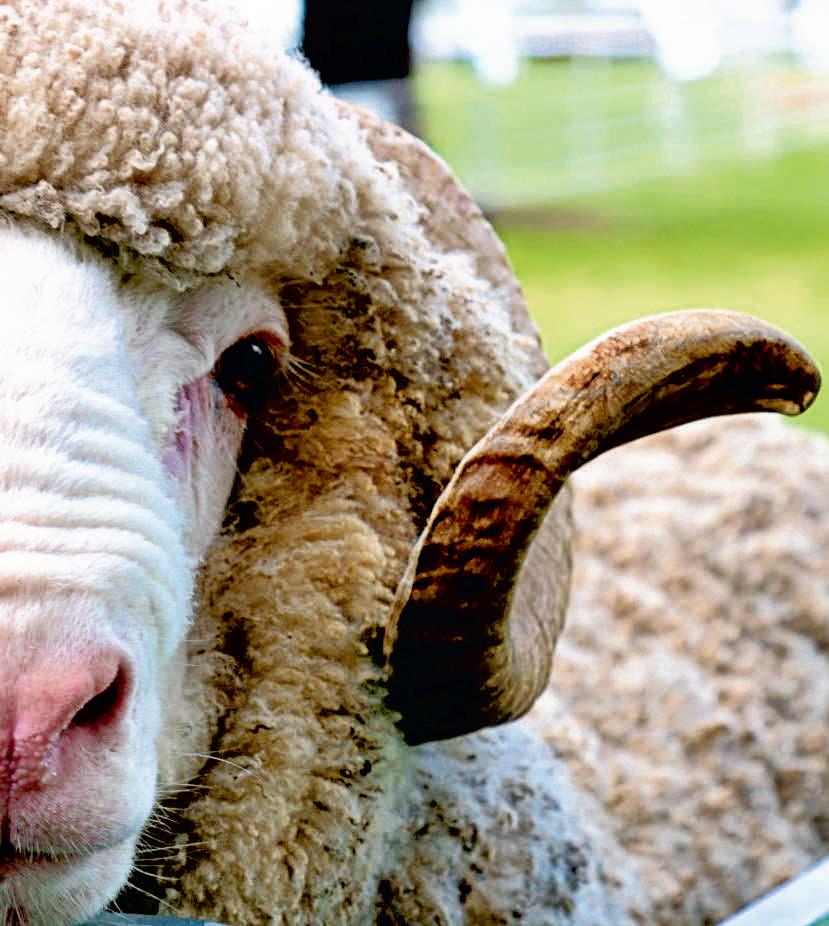
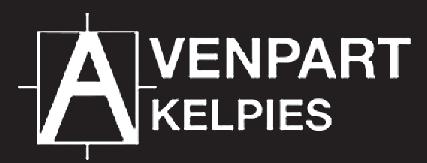



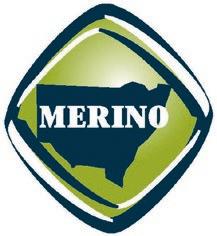
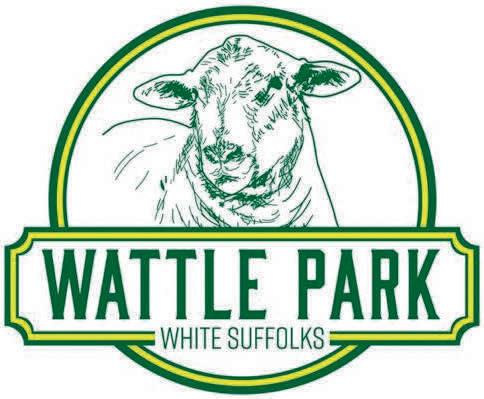

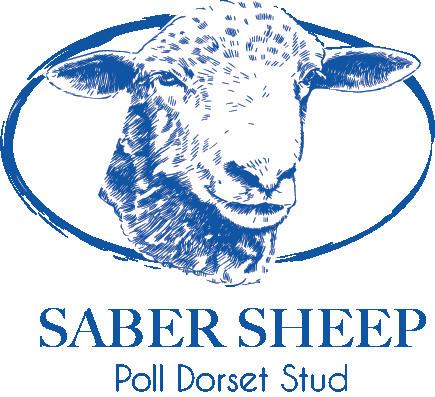
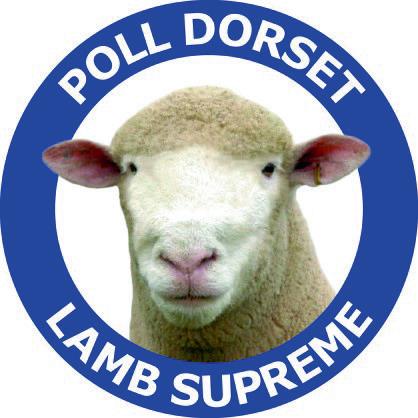
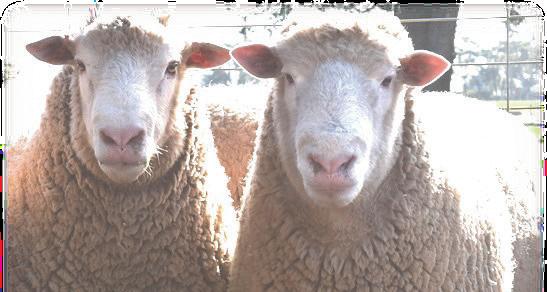
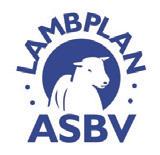

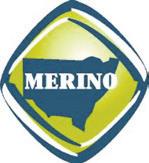
Merino Breeding Blending Genetic Depth, Practical Experience, Commercial Focus & Contemporary Measurement Tools. Thursday 31 August ▪ Stud Open Day Boonoke Woolshed Yards from 9 am Wednesday 13 September ▪ Ram Auction Boonoke Ramshed, Inspection from 9 am, Auction at 1 pm From 14 September ▪ Grade Ram Selections Online order or contact Stud Team for appointment Justin Campbell General Manager 0427 262 956 Angus Munro Breeding Manager 0437 929 195 Tom Lilburne Stud Manager 0488 601 603 austfood.com.au Insta wanganella. pollboonoke Friday, September 15, 2023, 1pm 96 Stud and specially selected 1 year rams 24 Rams mini auction Grade Rams following week 45TH ANNUAL SALE McCRABB FAMILY “AVENEL”, WANGANELLA, NSW COLIN & AMANDA - PH/FAX: (03) 5884 7558 - MOB: 0428 847 558 EMAIL: millabong@bigpond.com Ph: Ken & Mary (03) 5884 7548 Open Day Pre-Sale Inspection Friday, September 8, 2023, 10am-4pm 3% Rebate to outside agents. 140 White Suffolk Rams MN3V & brucellosis free Rams available for viewing from 9am - BBQ Lunch provided Thursday, September 28, 2023 - 1pm
Park White Suffolks ‘Wattle Park’ Broughans Rd, Finley. Ph John Jamieson 0427 500 676. On Property Ram Sale Flock no 190 7th Annual Ram Sale Friday, September 22, 2023 SABER Morvah Park, 1224 Moonee Swamp Rd, Deniliquin Inspections from 11.30am - Selling at 12.30pm Light lunch provided prior All Rams vet checked Brucellosis accredited and Gudair Vaccinated Further details or to request a catalogue Vendors: Steven and Linda Fawns 0428 303 316 www.sabersheep.com Agents: Arentz & Barker, SRLP Deniliquin Steve Arentz 0429 814 403, Justin Barker 0448 066 625 Facebook: Caroonboon Merinos caroonboonmerinos :Instagram Caroonboon Merinos Fifth Annual On-Property Merino Ram Sale Sale Date: Friday, September 8, 2023, 12.30pm Location: Caroonboon Station, Moulamein Road, Wanganella NSW 2710 75 RAMS Stud Principal: Margie Pye 0427 996 911 margiep01@bigpond.com Sandy Pye 0448 232 569 sandy@calga.com.au Stud Classer: Ian Lilburne 0428 505 252 Station Manager: John Stephens 0429 930 692 john@calga.com Over 150 years of breeding expertise
Wattle
Grazing stock on winter cereals
They have higher winter growth rates compared to most other pastures and can have a higher carrying capacity, which allows us to ease the grazing pressure on pastures and provides an opportunity to overcome the winter feed gap.
Stock grazing cereal crops are susceptible to several diseases such as pulpy kidney, hypomagnesaemia, hypocalcaemia, and nitrate/nitrite poisoning.
Here are a few simple things you can do to reduce the risk of these conditions impacting your stock.
Vaccination
Cereal crops are high in water soluble carbohydrates. This can increase the risk of an overgrowth of clostridial bacteria in the gut which can cause pulpy kidney and result in sudden death.
Giving a booster of a 5 in 1, 6 in 1 or 7 in 1 vaccine at least two weeks prior to grazing cereal crops is highly recommended.
It is a simple and cost-effective measure to reduce losses during the change in diet.
Minerals
Cereal crops are notoriously low in both calcium and magnesium.
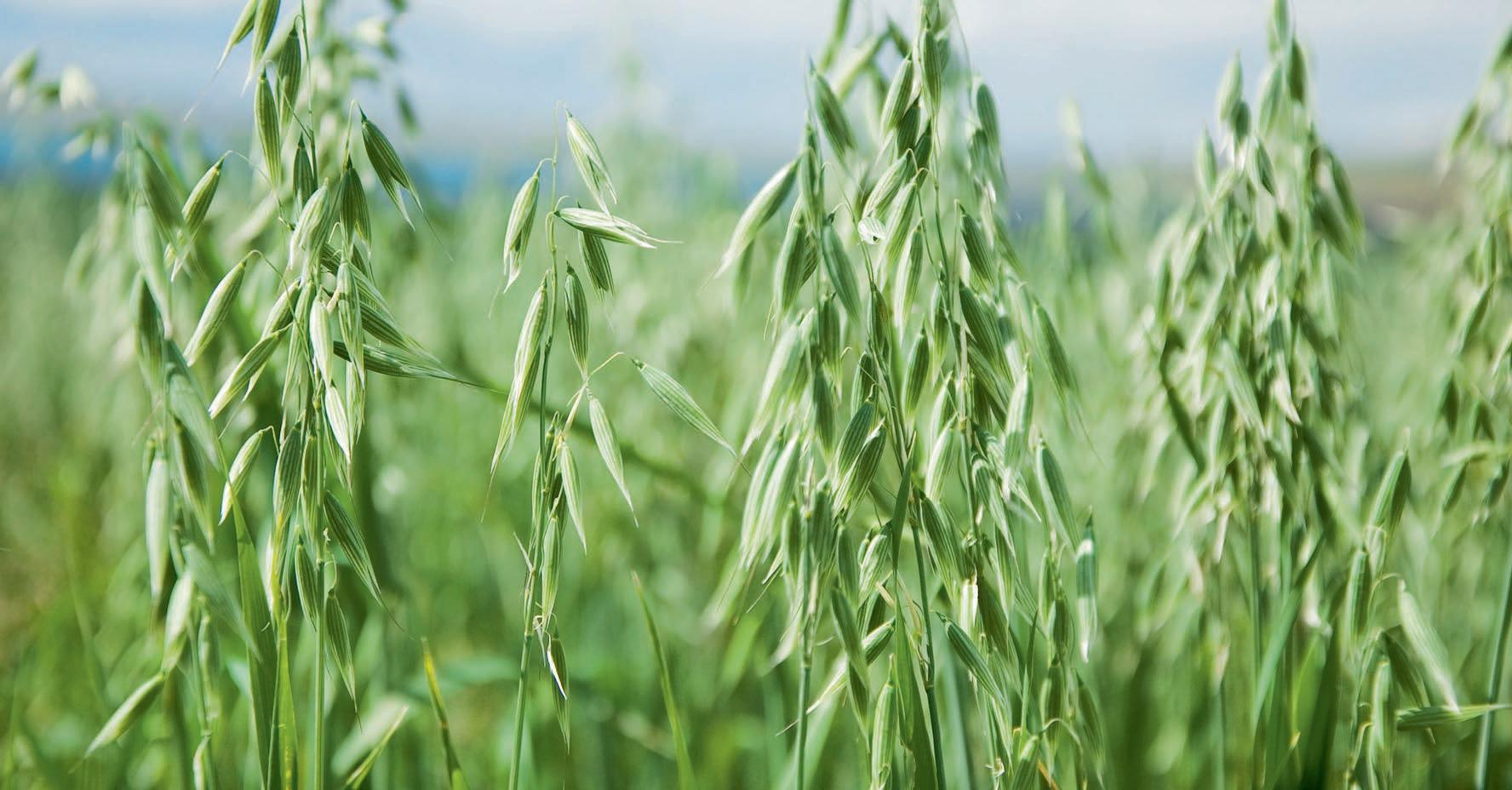
Pregnant, lactating, and growing stock all have higher requirements for calcium and magnesium, so are most susceptible to having a deficiency while grazing cereal crops.
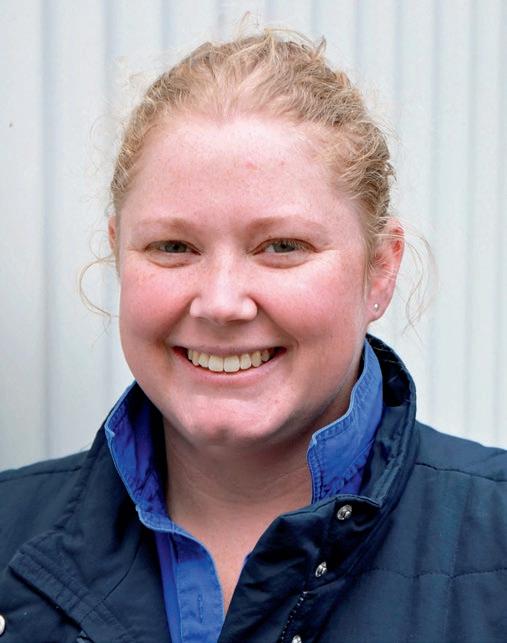
Cereals are also high in potassium, which can inhibit the animal’s uptake of calcium and magnesium.
Signs of low calcium or magnesium in stock can include recumbency (downer animals), muscle tremors, nervous signs, and death.
Providing mineral licks to stock is easy, and homemade loose licks are effective and affordable.
You can do this by mixing coarse salt, agricultural lime and causmag at a 2:2:1 ratio and provide in the paddock ad-lib.
Causmag can have a bitter taste, so it can help to slowly introduce it to the mix to allow stock to get accustomed to it.
Nitrate toxicity
Nitrates are found in lush green feeds, especially if nitrogen fertiliser has been applied.
Nitrate accumulation in plants is a potential danger to grazing animals. However, ruminants can tolerate reasonably high levels of nitrate in their diet if the intake is spread over time and their diet also contains high amounts of readily available carbohydrates, allowing the rumen to adapt and break down the nitrates in the diet to nitrite and ammonia.
Nitrate toxicity occurs when there are suddenly high levels of nitrate in the diet. When this occurs, the stock cannot convert the nitrate quick enough, causing it to build up in the blood and resulting in sudden death.
An example of this is when hungry stock, which have been off feed, are let out onto a lush green paddock and they hungrily graze and overload on nitrates.
To prevent the risk of nitrate toxicity in stock never suddenly introduce hungry stock to lush green feed. Fill them up on hay first and slowly introduce them to the paddock in the afternoon rather than the morning. Providing ongoing access to hay will also reduce the risk of nitrate toxicity while they are grazing the paddock.
Subscribe Home delivery to your letterbox from $5.50 per edition. Find us online www.denipt.com.au/farm-talk or on Facebook and Instagram Contact us Leesa Muir, Marketing P: 03 5881 2322 E: farmtalk@denipt.com.au Zoe McMaugh, Senior Journalist P: 03 5881 2322 E: farmtalk@denipt.com.au
Forage cereal crops can play an important role in many grazing enterprises in our area.
AUGUST 2023 FARMtalk • 9
Katelyn Braine (pictured) is a district veterinarian with Murray Local Land Services.
At a time when water buybacks have been making headlines my Water Management Amendment (Transfer of Water) Bill 2023 has been tabled in parliament.
It will prevent the transfer of NSW water to the Federal Government. Without my bill, there will be no limits on how water is recovered for the environment, devastating irrigation communities.
I’m calling for a moratorium on water buybacks in NSW so the government can get more reliable information and feedback from those who are most at risk.
The MDBA has indicated some of the water saving infrastructure projects being constructed by state governments are five to 10 years away from completion. Their plan is also predicted to fall at least 750GL short when it hits its mid-2024 deadline.


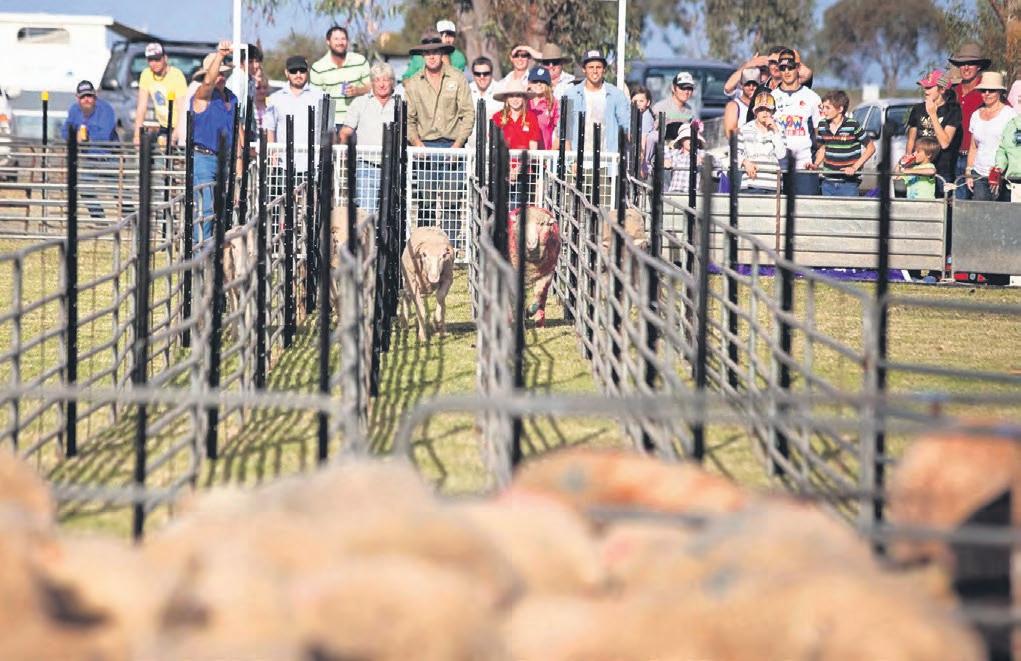
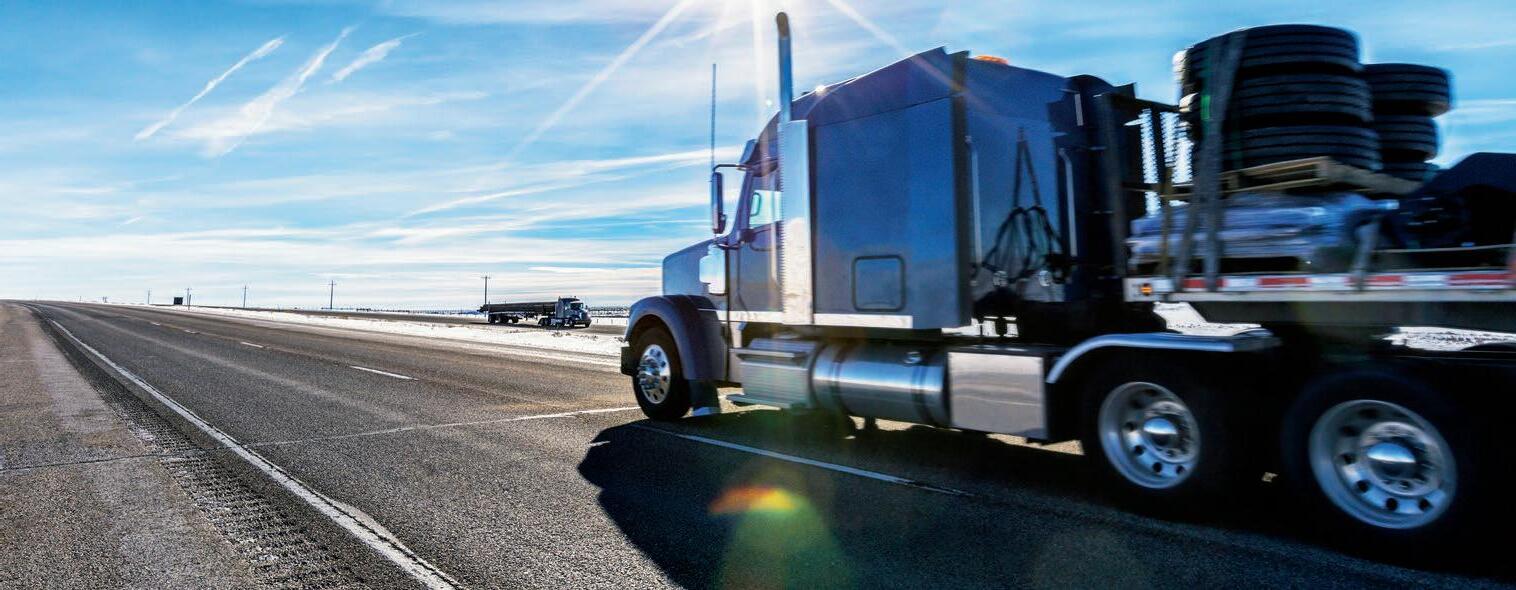
In an attempt to solve this problem the Federal Water Minister, Tanya Plibersek, has decided that changing the law should be the next step in delivering the Murray-Darling Basin Plan’s environmental water quota.

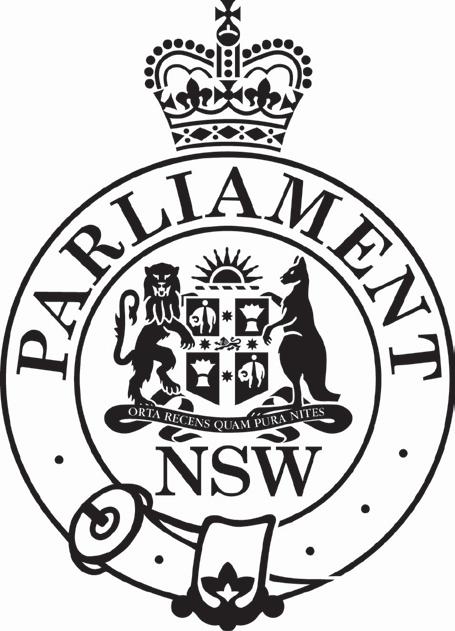
To meet the Minster’s KPIs, the federal government has extended the plan’s delivery timeline. And will pair the extension with changes to the Water Act to ignore negative social and economic impacts, in the hope of removing legislation that restricts water recovery. We know the damage water buybacks inflict on agriculture and the wider community.
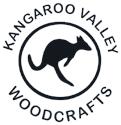 Helen Dalton MP for Murray
Helen Dalton MP for Murray
Authorised by Helen Dalton MP, Funded using Parliamentary Entitlements.





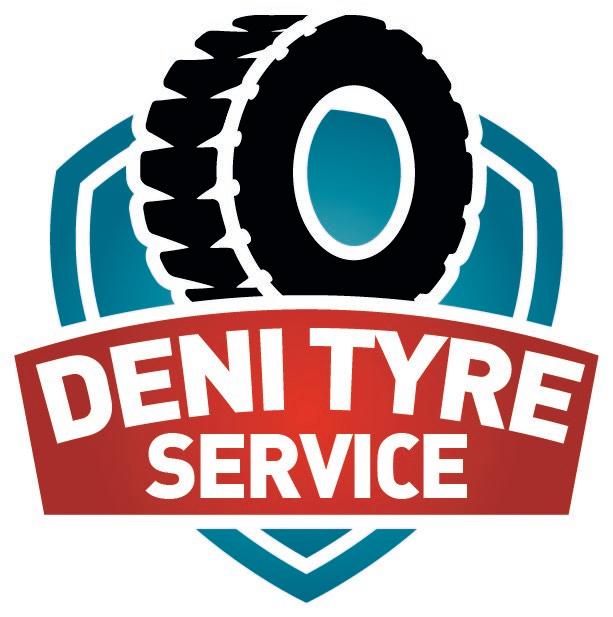
Helen
MP INDEPENDENT MEMBER FOR MURRAY Griffith 02 6962 6644 | Deniliquin 03 5881 7034 | Buronga 0475 683 288 | murray@parliament.nsw.gov.au Call now and book your pre-harvest check up Wheel alignments and balances Large range of tyre brands available Mobile service, we come to you! With on farm service and 24/7 call out. 249 – 257 Barham Rd, Deniliquin Contact Les Booth on 5881 2261 or 0428 796 607 BOOLIGAL SHEEP RACES Saturday, 30 September $50 to hire a sheep to race on the day. Gates open at 11am. All day BBQ, soft drinks and coffee van. Free camping and showers available. Free kids jumping castle. www.booligalsheepraces.com.au Facebook/booligalsheepraces info@booligalsheepraces.com.au For more information call Whitney on 0458 434 850 Auto Go Hay
Dalton
Call to join Aboriginal Water Committees
They are intended to ensure their voices are heard when it comes to water planning and management.
Department of Planning and Environment director of aboriginal water Darren Murray said the committees will strengthen the role of Aboriginal people in a governance structure that is inclusive and culturally appropriate.
“Water is sacred to Aboriginal people, and we know from years of discussions with Elders and other representatives that they need to have more of a say in guiding the important work we do in this space,” Mr Murray said.

“But they also don’t want to be burdened by consultation fatigue which is why we’re putting the call out to First Nations people to nominate to join these committees that will provide a far more streamlined and effective approach.
“The successful applicants will enable effective exchange of knowledge between Aboriginal communities and the department and empower communities in their participation in water programs and projects.”
Each committee will consist of up to 12 members and will be regionally based in alignment with the NSW Government’s 12 Regional Water Strategy areas. Meetings will be held up to six times a year.
“This is about strengthening confidence, trust and co-operation between Aboriginal people and the New South Wales Government and ensuring their rights and values are considered at a local level,” Mr Murray said.
“It is a terrific opportunity to amplify Aboriginal voices at a regional level so if you’re interested, please contact us to register.”
Committee members need to be Aboriginal and accepted by their community as a person who can represent their interests.
They also must live in the community they represent and ideally, have knowledge of local water issues.
To learn more and get involved, go to https:// www.dpie.nsw.gov.au/water/plans-and-programs/ aboriginal-water-program/regional-aboriginal-watercommittees.
Alternatively, email awp.engagementteam@nsw. dpie.gov.au.
Expressions of interest close midnight on August 24, 2023.
Race day with a difference
Just 75km north of Hay, the historic town of Booligal hosts a race day with a difference each year.
It’snot horses and greyhounds you’ll see in action, but sheep.
Proudly sponsored by FARMtalk magazine this year, the Booligal Sheep Races will be hosted at the Booligal cricket grounds on Saturday, September 30.
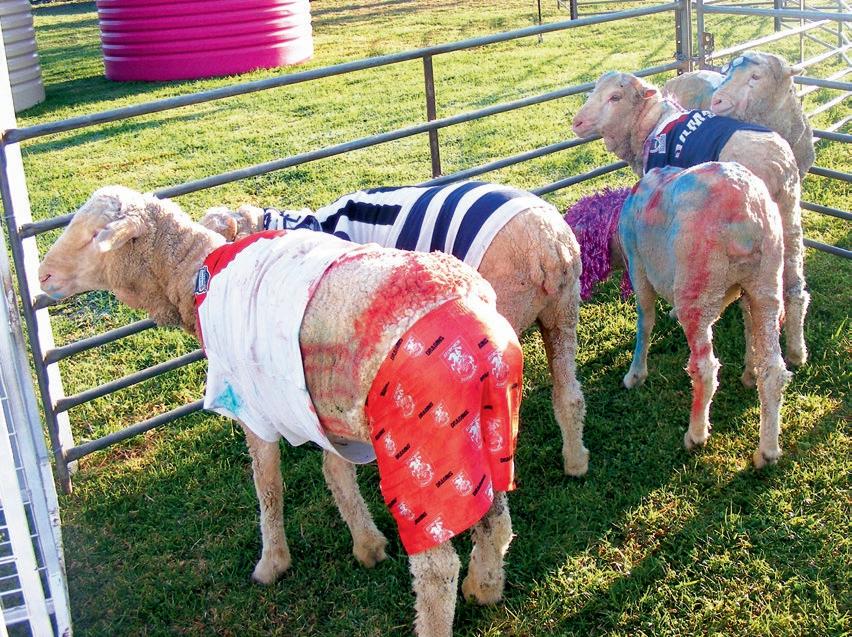
An event that has entertained and celebrated the sheep industry since 1988, the ‘‘big family fun day’’ kicks off at 11am. The runners — sheep from a local farm — start their heats at 1pm.
There are 20 heats leading up to the famed Booligal Cup race, the winner of which gets to take home the cup.
There are five lanes each race, and once the gun goes off and the sheep start running, the noise from the crowd cheering on their sheep is almost deafening.
If you don’t have a sheep of your own, you can ‘hire’ one on the day for only $50. And after heat eight, you can bid in an auction for 10 of the top performing sheep.
There’s also the annual crawl for cash, organised by age group, and gumboot throw.
A barbecue will be cooking away all day, with soft drinks and a coffee cart also available. And for the youngest racegoers, there will be a free jumping castle. For more information, go to www.booligalsheepraces. com.au.
The NSW Government is seeking expressions of interest from Aboriginal people across the state to join new Regional Aboriginal Water Committees.
AUGUST 2023 FARMtalk • 11
Warmer, dry conditions are key

AUGUST
12 •
2023
FARMtalk
“We have a Deni farm in Lindifferon Lane off Conargo Rd, and I lease one in Hay,” he said.
His farms fall in one of the main production areas being central and southern Queensland, northern, central and southern NSW, northern Victoria and small areas of northern Queensland, northern Western Australia and the Northern Territory.
Approximately 66 per cent of Australia’s cotton is grown in NSW and 33 per cent in Queensland. As many as 90 per cent of Australia’s cotton businesses are family farms, producing about 80 per cent of the crop. These families have often lived and worked in their communities for generations.
“We have been farming cotton for about the last five years,” Lachie said.
“Before that it was mainly wheat and canola.
“Even though cotton is harder to produce, we found there was a better growth margin.”
The average family-owned and operated cotton farm directly creates jobs for nine people and is run by growers with an average age of 47 years.
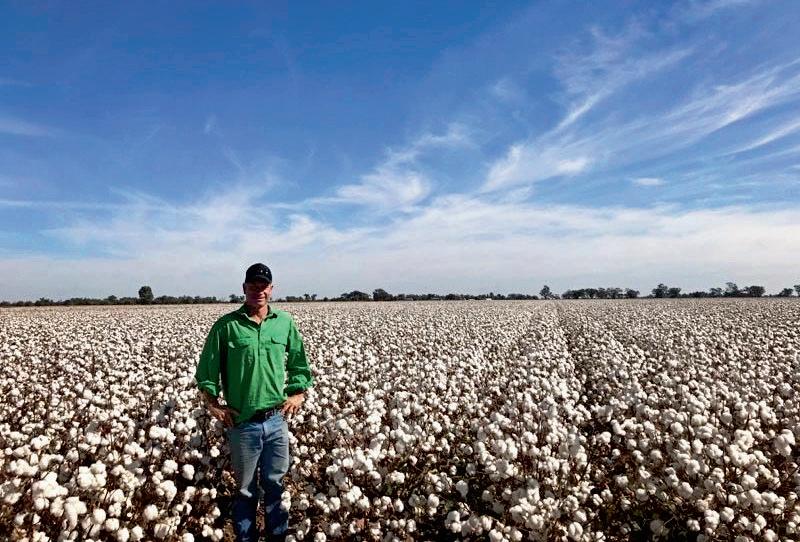
In regards to access to labour Mr Danckert said “we are like the rest of Australia.”
“We are 100 per cent struggling to find workers.”
In the cooler months, Lachie farms wheat and canola and finds that it adds quality organic matter for the cotton crop when it rolls around again.
Australia’s cotton industry is one of the most water efficient cotton industries in the world. Cotton’s average irrigation requirement is 6-7 megalitres per hectare.
Long-term monitoring shows the cotton industry’s significant improvements in water efficiency over time.
Mr Danckert has not found water availability an issue. The biggest problem for the current crop is climate, he said.
“The weather has been too cold, with not enough day degrees,” he said of this season.
“Over the last few years it has reduced the quality of the cotton and our yield.”
With lower temperatures, farmers have to make adjustments as to how to grow the cotton for the cooler temperatures and wetter periods.
“Another challenge has been the price of fertiliser.”
The war in the Ukraine, the COVID-19 pandemic and the cost of living crisis have all played a part in rising costs and supply and demand.
“The war in the Ukraine has been the most influential factor on fertiliser,” he continued.
“The cost has come down a little this year but compared to three or four years ago they are extremely high.”
Disease management can also be a challenge the growers face, but Lachie said, “it hasn’t been a problem for us, as such.”
“It’s more the growers north of us,” he said.
Cotton is a natural fibre that grows on a plant. It is both a food and fibre crop, and the plant is a leafy, green shrub related to the hibiscus species of plants.
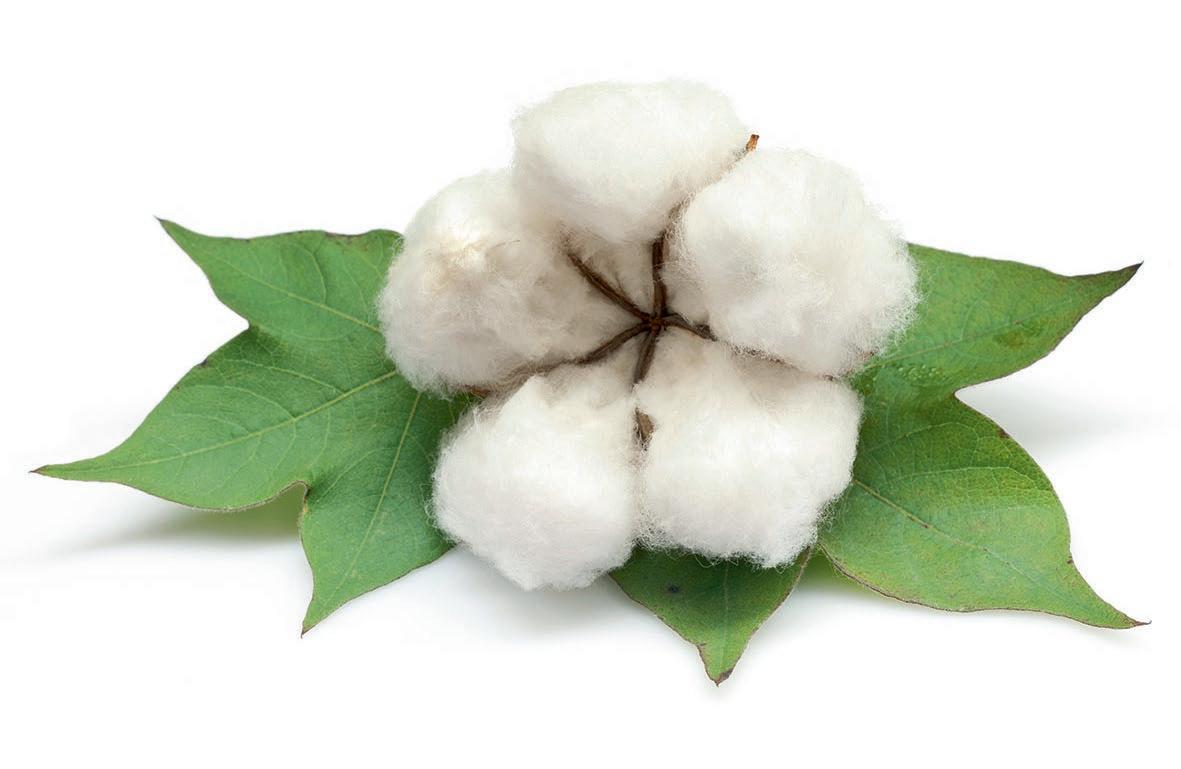
There are up to 52 species of cotton in the Gossypium genus. The most commercially grown cotton species is Gossypium hirsutum, first developed by the Mayan civilisation in Mexico.
Cotton is the most widely produced natural fibre in the world, representing about 31 per cent of the world textile market.
It is grown commercially as an annual shrub and reaches about 1.2m in height. Its leaves are broad and heart-shaped with coarse veins and three to five lobes.
The plant has many branches, with one main central stem. The cotton plant’s taproot reaches a depth of 1.5 metres.
Squares (flower buds) develop several weeks after the plant starts to grow, with flowers appearing a few weeks later. The flowers then drop, leaving a ripening seed pod that becomes the cotton boll (the fruit) after pollination.
The plant also produces seeds that are contained in small capsules surrounded by fibre in the cotton bolls.
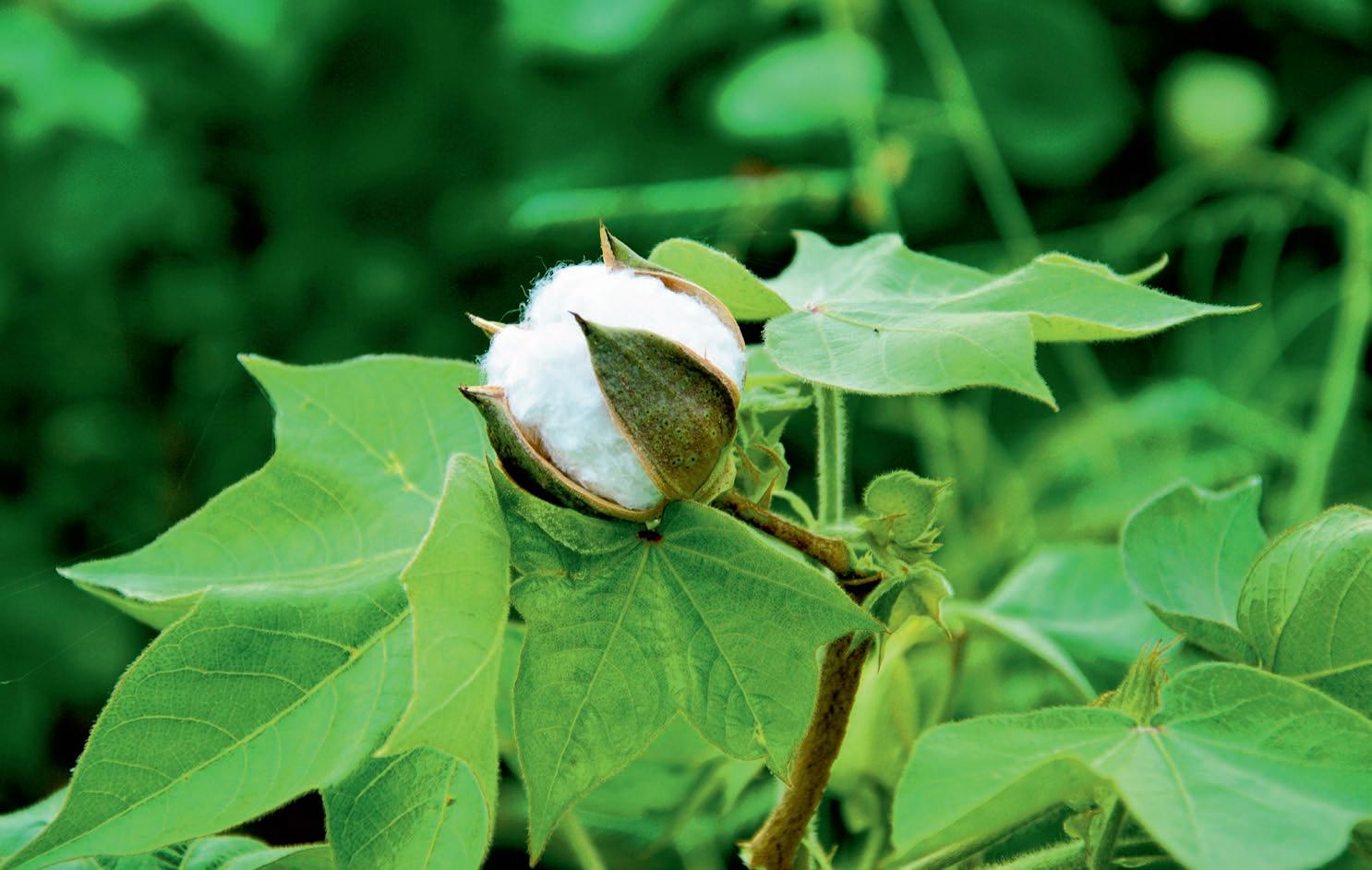
Each cotton boll usually contains 27-45 seeds, and attached to each seed is between 10,000 – 20,000 tiny fibres about 28mm in length.
Cotton fibre is made from cellulose, has a slim coating of wax and is thin and hollow like a straw.
When mature, the crop is picked and ginned, a process that separates the cotton fibre (or lint) from the seed. Cotton lint makes up about 42 per cent of the picked cotton by weight, and contributes about 85 per cent of the total income from a cotton crop. The other 15 per cent of income comes from cotton seed.
The Australian cotton industry provides employment for more than 12,000 people industry-wide and generates $2 billion per year in export earnings.
Cotton is a major commodity, representing 30 per cent to 60 per cent of the gross value of the total agricultural production in Australian regions where it is grown.
In an average year, Australia’s cotton growers produce enough cotton to clothe 500 million people.
This year, Lachie said there has been “disappointing yield.”
“This has come from the cold summer we had.”
If the ‘El Nińo’ comes into play as meteorologists are predicting, Lachie said “we would find that ideal.”
“A warmer, drier summer should create better prices and better yield.
“We have the water allocation, so if we get the good dry weather our crops will definitely be looking more promising (next season),” he said.
Like any growers, cotton farmers also operate from a point of view that profitability and productivity go handin-hand. Gains in both rely on adopting sustainable measures and maximising efficiencies across all processes in farming production.
There are up to 1,500 cotton farms in Australia and Deniliquin farmer Lachie Danckert has two of them.
“Even though cotton is harder to produce, we found there was a better growth margin.”
DENILIQUIN, NSW AUGUST 2023 FARMtalk • 13
LACHIE DANCKERT

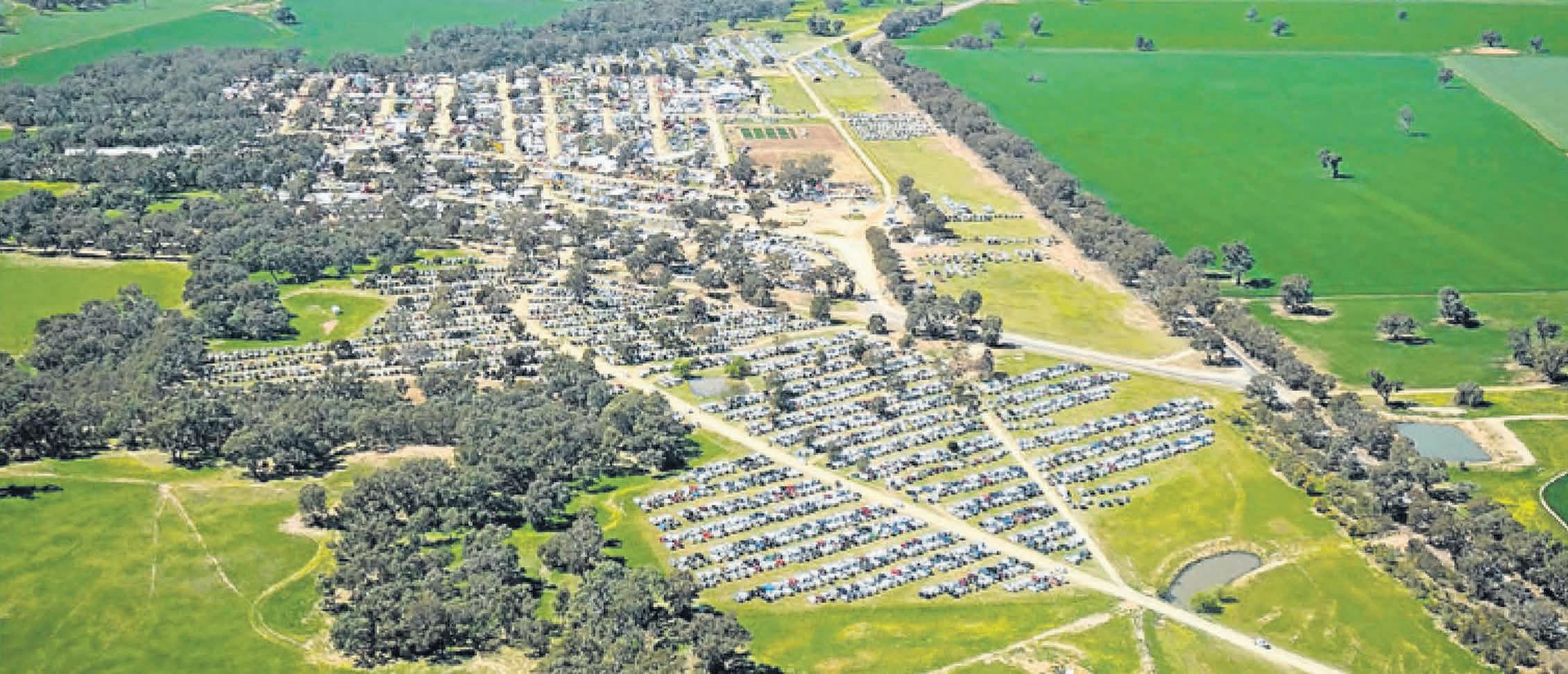









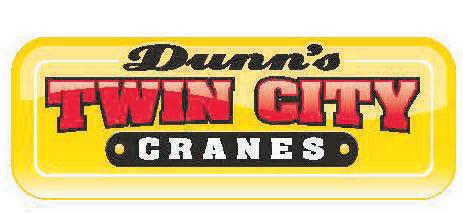


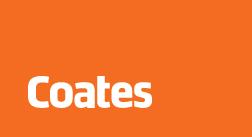

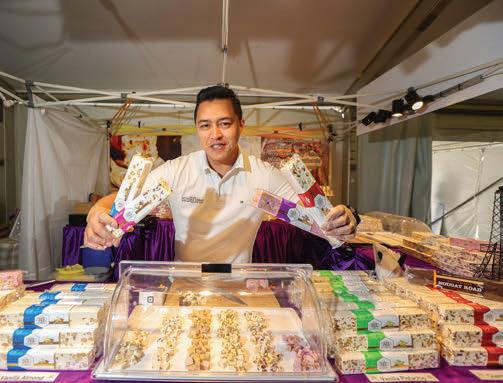
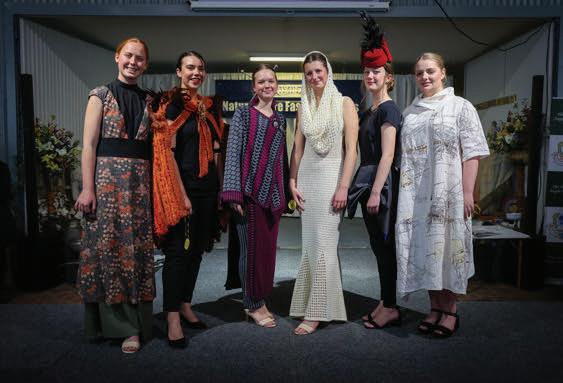

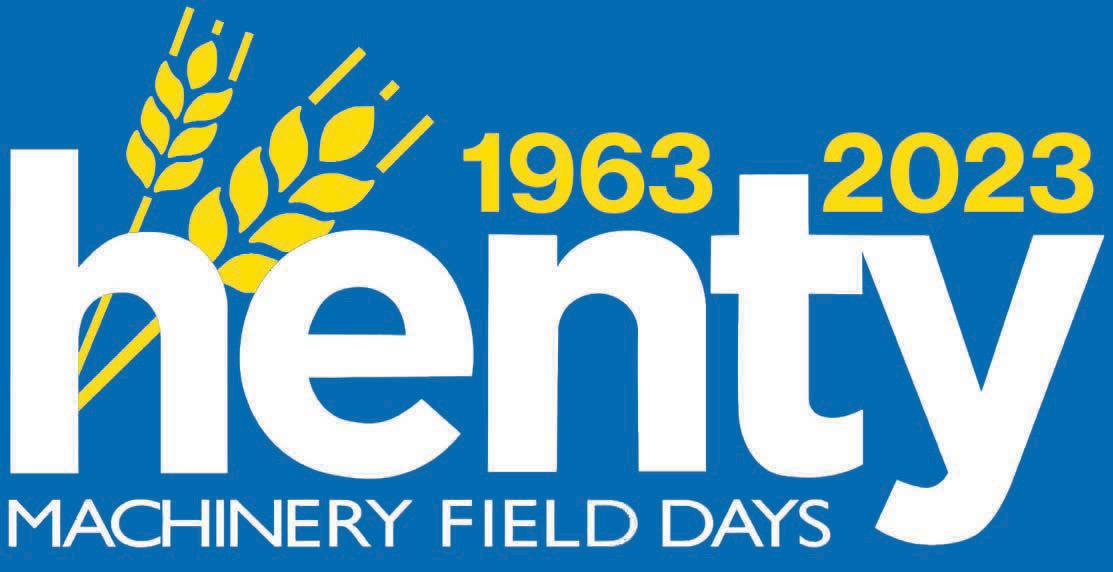
Book Online to save and beat the queues Australia's biggest agribusiness supermarket See over $150 million in machinery • Over 850 exhibitors on 1200 sites • Fashion parades, cooking demos, dog trials, machinery award winners, entertainment and much more AW7252464 Visit www.hmfd.com.au for full details
Agri-Innovators Awards to champion ag-tech creators
Producers looking to adopt trailblazing technology on farm and benefit from improved sustainability, reduced costs and empower them with better decisionmaking capabilities can visit the TEKFARM Agritech Innovation Hub.
Powered by Farmers2Founders, the hub will showcase the best and upcoming innovative tech solutions available to producers across all agricultural sectors, empowering them with cutting-edge tools and technologies to revolutionise their farming practices and enhance productivity.
In recognition of NSW’s prominent role in AgTech, the 2023 Henty Machinery Field Days will mark the resurgence of the Agri-Innovators Award.
This year the award program will encompass a wider range of agricultural sectors, showcasing the accomplishments of emerging innovators and introducing a significant accolade to the Female Innovator of the Year.
This expansion aims to celebrate and champion the ground-breaking advancements in agriculture within the state.
The award categories are:
• Agritech Innovation of the Year
• Emerging AgTech Innovation
• Innovative Producer Award
• Female Innovator of the Year
Henty machinery Field Days chief executive officer Belinda Anderson welcomed the partnership with Farmers2Founders to showcase innovative solutions ready for adoption on farm.
Mrs Anderson said The Land and NSW Farmer Association Farm Inventor of the Year competition had been a perennial favourite at the field days for 51 years until it was replaced by the Agri-Innovators Award in 2015.
“The awards had provided the launching pad for scores of backyard tinkerers, budding entrepreneurs and enterprising visionaries, highlighting everything
from the latest technical and commercial developments through to product releases,” Mrs Anderson said.
“These new award categories will complement the existing highly coveted HMFD Machine of the Year Award and Best Australian Designed and Manufactured Machine.”
Farmers2Founders Head of Operations and Partnerships Claire Pink said the TEKFARM Agritech Innovation Awards were open to tertiary and university students, farmers, backyard tinkerers and innovators from any state.
“Entries can by any agribusiness invention, ranging from a mobile phone app or computer software program to the largest tillage machinery,’’ Ms Pink said.
Entries close on August 21, 2023, with entries to be judged prior to the field days and the winners to be announced at the Henty Machinery Field Days at 10.30am at The Stump on Thursday, September 21.
For more information and entries visit www. farmers2founders.com/henty-agri-innovators-awards

For the past six decades, innovation has been at the heart of the Henty Machinery Field Days, and in 2023 Henty will be partnering with Farmers2Founders to shine a spotlight on the opportunities available.
AUGUST 2023 FARMtalk • 15
Justin Dunn, of Temora, a previous winner of the Agri-Innovators Award at Henty. The award is to be reinvigorated in 2023 by Farmers2Founders.

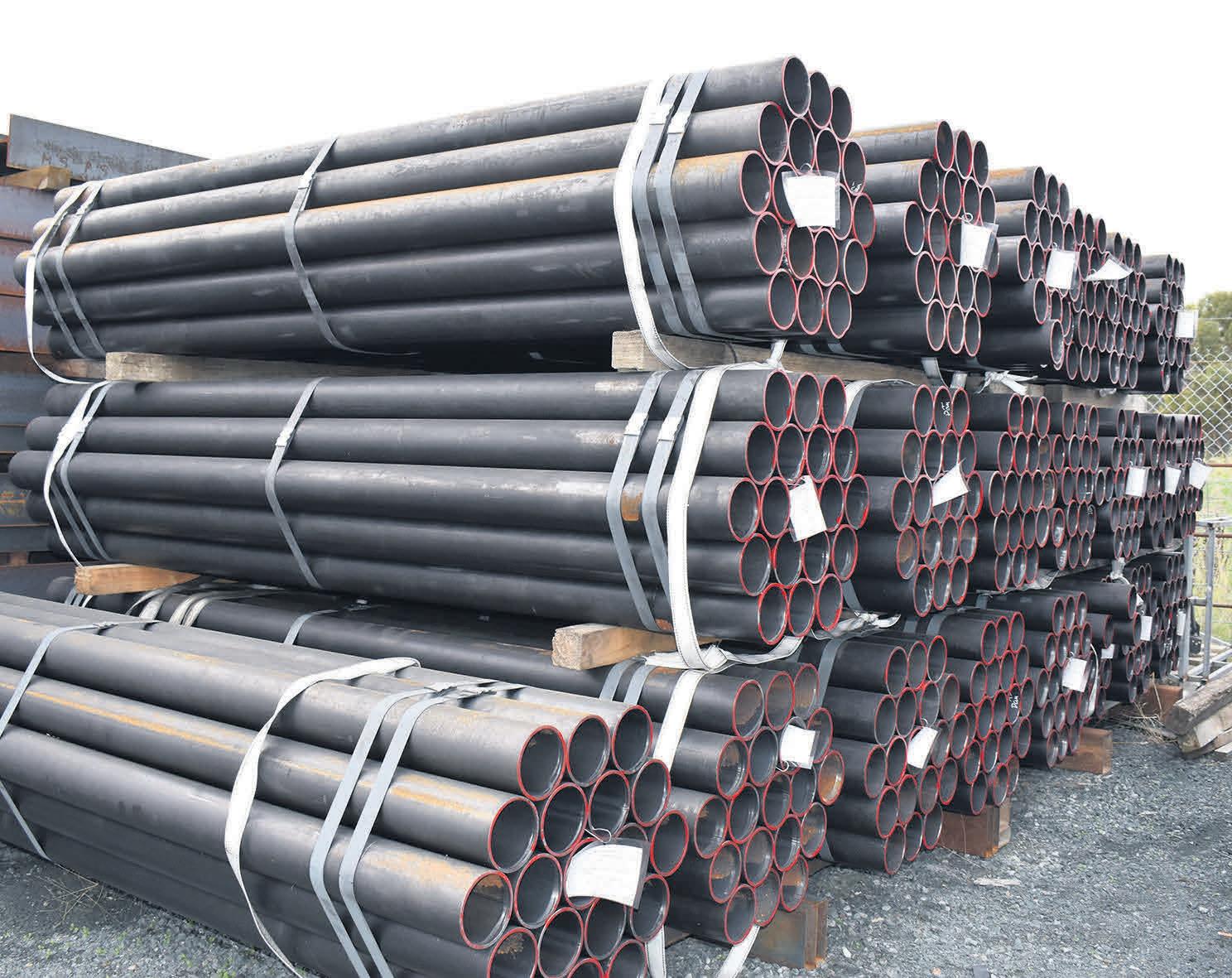
PAINTED A-GRADE RHS 50 x 25 x 1.6 – 8mtr ................................ $40 50 x 50 x 2.5 – 8mtr ................................ $79 100 x 50 x 2.5 – 8mtr ............................. $118 150 x 50 x 3 - 8mtr................................ $176 100 x 100 x 2.5- 8mtr............................ $148 PTY LTD 345-351 Augustus St, Deniliquin - off Conargo Rd Ph 5881 6688 Email - admin@northdenisteel.com.au AUGUST SPECIALS NORTH DENI PTY LTD STEEL GALVANISED A-GRADE RHS 25 x 25 x 1.6 – 6.5mtr ............................. $22 25 x 25 x 2 – 6.5mtr ................................ $25 50 x 25 x 2 – 8mtr ................................... $50 50 x 50 x 2 – 8mtr ................................... $65 100 x 50 x 2 – 8mtr ............................... $110 100 x 50 x 2.5 – 8mtr ............................ $138 100 x 50 x 3 – 8mtr ............................... $160 STRAINER POSTS 100nb x HVY 5.4mm Wall BLK 8FT ........$88 100nb Med Gal 4.5 mm Wall 8 FT .........$85 ALSO IN STOCK Various sizes of Downgrade RHS & “W” Strap available. Price on enquire CORRUGATED IRON Zincalume .42bmt ........................... $12 L/M Colourbond .42bmt ..................... $16.50 L/M GALVANISED PURLINS C10015 – 6.100mtrs ............................... $50 C15015 – 6.100mtrs ............................... $70 C20015 – 8.000mtrs ............................. $120
A modern marvel
The project, met with accolades from the local council and positive feedback from buyers, is slated to be completed by the end of this year.
A significant milestone for the farming community, this modernisation effort promises state-of-the-art infrastructure, cutting-edge livestock handling systems, and improved animal welfare measures.
The redevelopment project, based on the Corowa Saleyards Masterplan adopted by Federation Council in February 2021, consists of four distinct work packages being delivered concurrently:
Stage 1: Effluent system upgrades
One of the initial stages, the effluent system upgrades, is almost complete with 98 per cent of the work already finished.
This phase involved essential improvements such as treated effluent irrigation, drainage reconfiguration, and the installation of a polymer dosing system to facilitate waste settling.
These upgrades not only benefit the environment but also contribute to animal health, a point that has garnered positive feedback from national buyers and sellers in the yards.
Stage 2: Civil works
The civil works, currently at 70 per cent completion, include critical components like site earthworks, the expansion of the stormwater basin, and the construction of a new truck wash and entry/exit roads.
AP Delaney, the construction company handling this phase, is set to complete the remaining work after the new administration building’s July 2023 opening.
Stage 3: Administration building and multipurpose learning centre
Progressing steadily, stage three involves the construction of the public administration building and has already completed key components, such as in-ground services installation and the building’s concrete slab.
The new multipurpose learning centre aims to provide educational resources to farmers, fostering a sense of community and knowledge sharing.
Stage 4: Roof structure, roof stormwater collection, Solar PV system
The final stage, which involves the roof structure, stormwater collection system, and Solar PV installation, has been successfully completed by MKM Constructions.
With LED lighting and solar energy generation, the saleyards aim to reduce their environmental footprint while ensuring sustainable and efficient operations.
The total project budget for the Corowa Saleyards redevelopment is $11.592 million, with funding provided by the NSW Government’s COVID-19 Stimulus initiatives and a contribution from Federation Council.
While the project has encountered potential risks and challenges, such as supply chain disruptions and weather delays, the project team remains dedicated to staying within budget and schedule.
In June, the NSW Minister for Skills, TAFE, and Tertiary Education Tim Crakanthorp, Member for Albury Justin Clancy and representatives from Federation Council - including Mayor Pat Bourke and general manager Adrian Butler - visited the saleyards.
Mr Crakanthorp praised the modernisation efforts, emphasising the importance of cutting-edge infrastructure and improved animal welfare measures.
The completion of the Corowa Saleyards Redevelopment Project promises to be a significant asset to the community, providing enhanced facilities and services for livestock trading.

With buyers and sellers already expressing enthusiasm for the changes, the revamped saleyards are set to become a thriving hub for agricultural commerce.
At a recent monthly meeting of Federation Council, Cr Aaron Nicholls expressed his satisfaction with the project’s progress and construction quality.
“From my experience of what it takes to build, this has been done the right way. I’m really looking forward to seeing it open.”
Cr David Longley also praised the project, highlighting the positive feedback received from buyers and sellers about improved animal health and the new facilities that will help attract national buyers.
Once unveiled, this modern marvel is set to raise the bar for livestock trading and cement its place as an essential cornerstone of the region’s agricultural landscape.
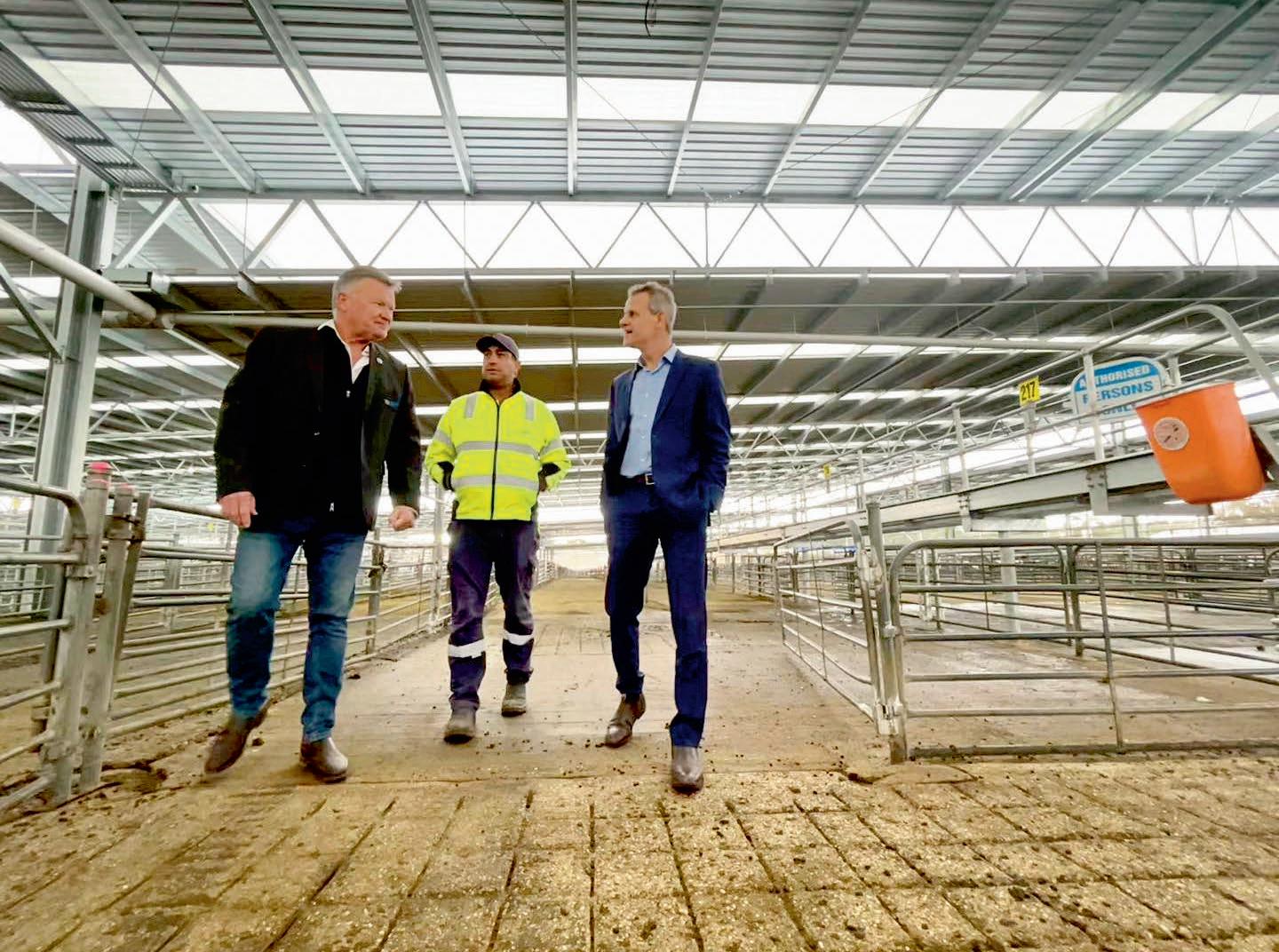
The Corowa Saleyards Redevelopment Project is on the cusp of transforming livestock trading in the region, as it enters its final stage of delivery.
Federation Council Mayor Patrick Bourke, saleyards coordinator David Coppolino, and NSW Minister for Skills, TAFE, and Tertiary Education Tim Crakanthorp recently inspected the Corowa Saleyards.
AUGUST 2023 FARMtalk • 17
The Corowa Saleyards Redevelopment Project, including the pictured administration and learning centre, is expected to be completed by December this year.
Your Farm Sale Specialists
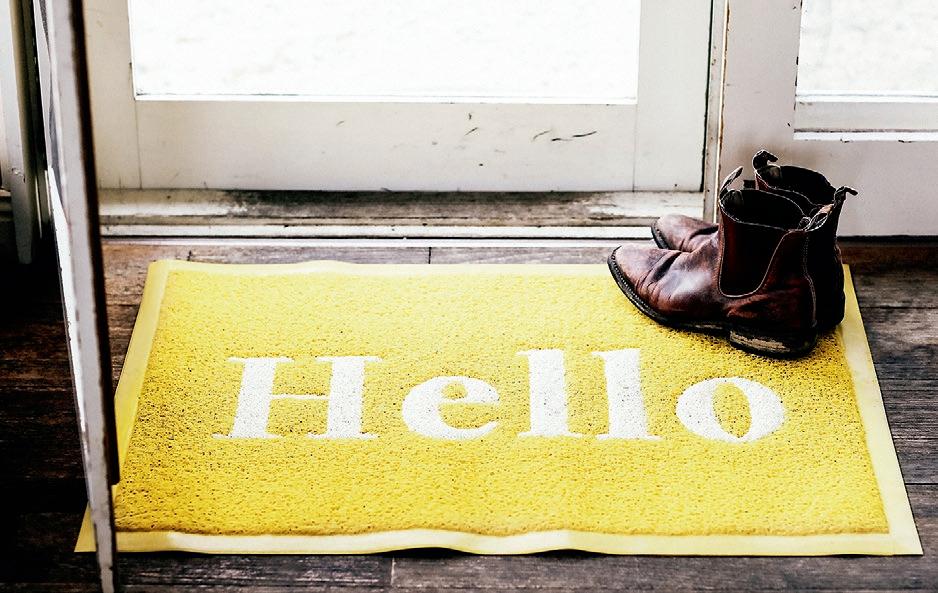
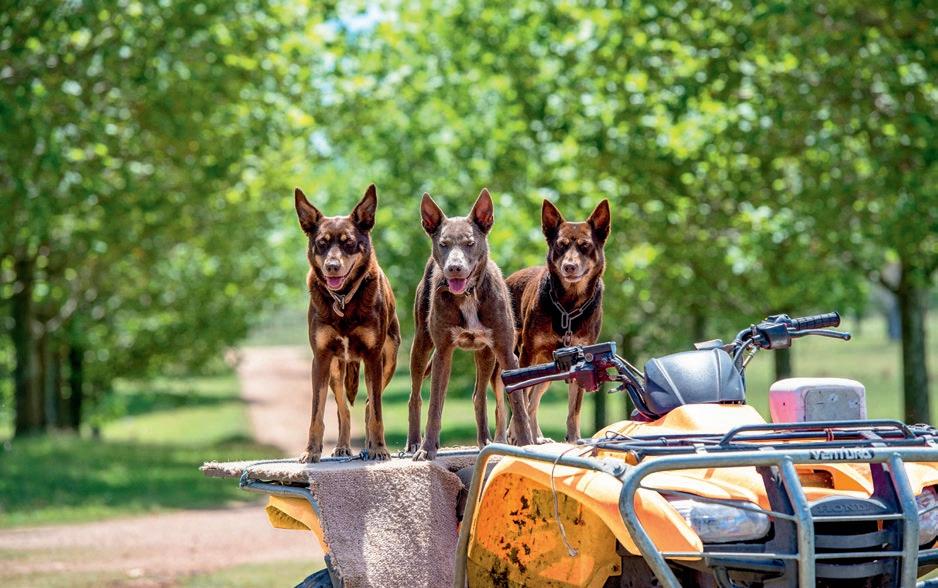



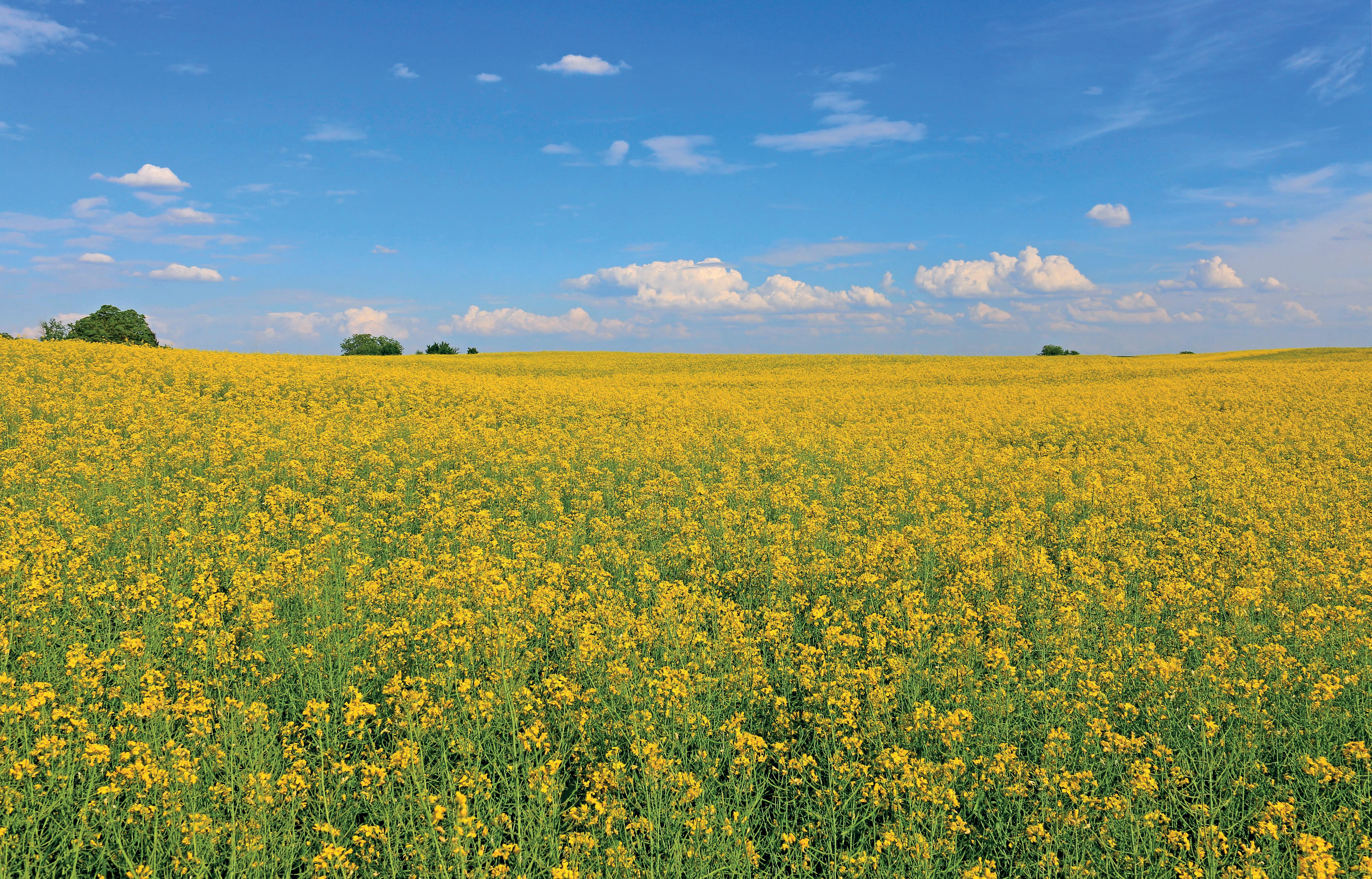
Ray White Rural
Hamish Thomson 0419 532 259 Ray White Rural Deniliquin I 173 Cressy Street I 5881 1000 raywhitedeniliquin.com ‘Ready to hang up the Boots’ Selling or Leasing • Market Leaders | selling more rural property than anyone else • Marketing - reaching more buyers who have bigger budgets • 100% Australian, 100% Family Owned, 100% Local Approachable | Professional | Reliable
Try goat instead
According to Meat and Livestock Australia (MLA)
Australian goatmeat can continue to develop opportunities in key global markets, if it can address some prevailing barriers.
The majority of goatmeat is harvested from rangeland or feral, bush goats.
A 2017 survey of NSW goatmeat producers conducted by NSW Department of Primary Industries and MLA found that 71 per cent of the 454 enterprise producers who responded had a harvest enterprise, while 29% operated a managed or semi-managed enterprise.
This dependence on rangeland goat flocks and seasonal conditions mean that production and exports tend to be subject to relatively volatile supply.
Several years of drought conditions resulted in smaller flock sizes, flowing on to lower goat slaughter and exports from 2017 to 2020.
However, widespread rainfall during 2020 and sustained good conditions due to a La Niña weather pattern during 2021 has seen flock numbers increase.
According to MLA’s NLRS, eastern states goat slaughter increased 42% year-on-year in 2021.
In NSW producers processed just over 86,685 head, which is 20% more than in 2020.
This increase has had a dramatic effect on prices, and forced some producers and processors to close down until prices improve.
Goat meat prices peaked at 920 cents a kilogram in June 2022 and out-performed lamb and mutton prices in 2020-2021.
However, prices plummeted in June 2023 and now hover around 120 cents per kilogram for all weights nannies and billies.
As fuel and wage costs increase, the economics of harvesting rangeland goats in outback NSW has become unaffordable for most, leaving the animals to roam the landscape, damaging the environment.
North America has been the largest market for Australian goatmeat for over two decades.
This is set to continue, driven by population growth, demographic change and evolving consumer tastes. In the US, as in all major markets, goatmeat is a niche protein.
The US accounted for 66 per cent of Australian goatmeat exports in 2021, while Canada is emerging as a fast-growing market, accounting for 6.7 per cent of export volume in 2021, an increase of 35 per cent over 2020 volumes.
While goat meat is eaten widely in many other parts of the world and is highly nutritious, here in Australia, it’s still seen as a “niche” product.
With beef and lamb, consumers have a huge range of very familiar choices, an enormous variety of cuts and endless advice on how to cook with each one.
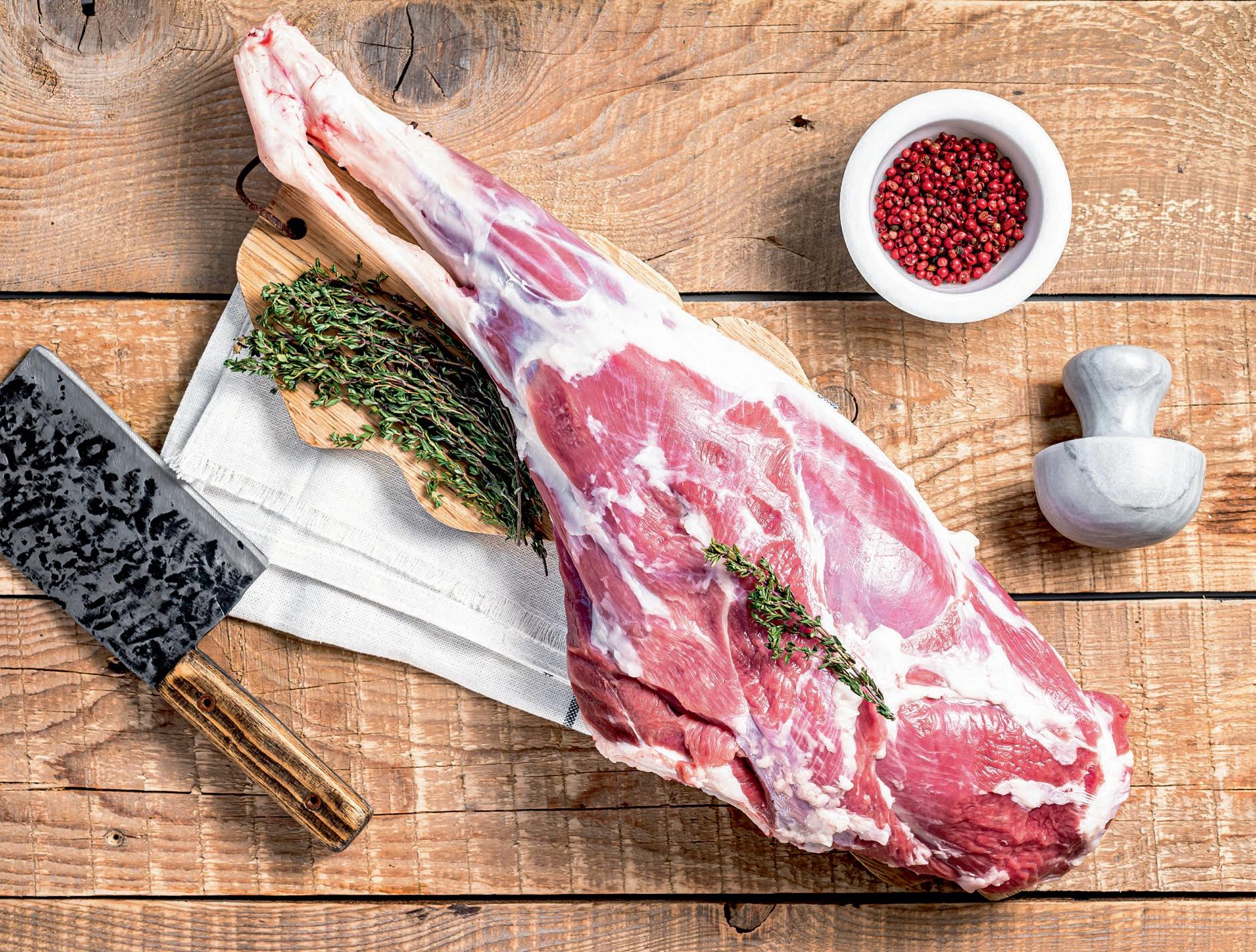
When consumers request goat meat in Australia, that’s usually all you can ask for, with very little information about, provenance, cut or cooking recommendations.
“No one would suggest that a lamb shank would be put on a barbecue; it’s not the right way to cook it,” says Jo Stewart, Boer goat breeder the brains behind The Gourmet Goat Lady website https:// thegourmetgoatlady.com.au
“But unfortunately, if you buy goat that’s the wrong cut and you cook it the wrong way, it’ll be tough. And when that happens, then people will think, ‘I’m never buying that again’.
According to MLA several drivers have been successful in growing the consumption of other niche proteins such as turkey, kangaroo and duck and could be used to boost consumption of goatmeat in Australia.
“Producers need to encourage consumers to make a restaurant-quality goatmeat dish at home by providing them with the information and inspiration, and drive a new trend by leveraging the fact that goat is consumed all over the world, increasing mealtime variety.
“In particular, increasing the popularity of cuisines that feature goatmeat including Southern Asian, Caribbean, Mexican and Middle Eastern.”
MLA says just as summer is the season for seafood and spring is for lamb, winter could be the popular season for goatmeat, as reflected in a number of Asian countries, when slow, wet cooking methods are more popular and there should be more emphasis on the health benefits of goatmeat as a lean, affordable protein.
Goat meat is consumed in most countries around the world. It is a is a meat protein that has no associated religious or cultural restrictions and is considered to be highly nutritious.
“Producers need to encourage consumers to make a restaurant-quality goatmeat dish at home by providing them with the information and inspiration, and drive a new trend by leveraging the fact that goat is consumed all over the world, increasing mealtime variety.”
AUGUST 2023 FARMtalk • 19
JO STEWART
‘MUTHERUMBUNG’ BOOLIGAL NSW - GRAZING & COTTON
• 5771 Hectares (304 Ha Irrigation, 5467 Ha Grazing)
• Approx. 110km North of Hay NSW
• 6 Bedroom, 3 Bathroom Homestead (50 Squares), surrounded by established gardens and trees
• All steel fencing with majority new within the last 2 years
• 6 Stand Shearing shed with shearer’s quarters
• All steel and timber construction sheep yards with containment yards attached, Cattle yards
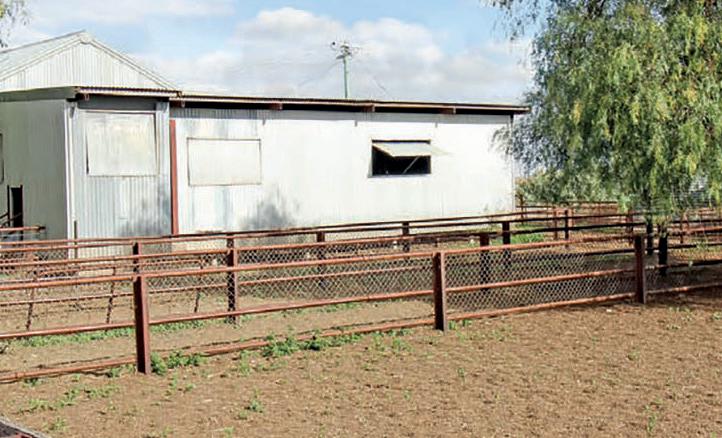
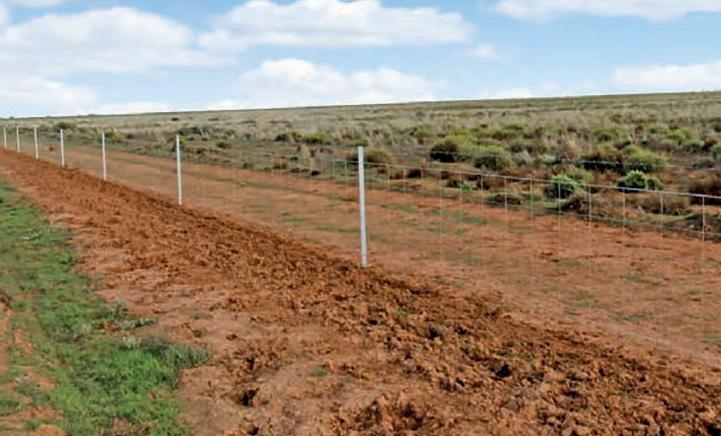
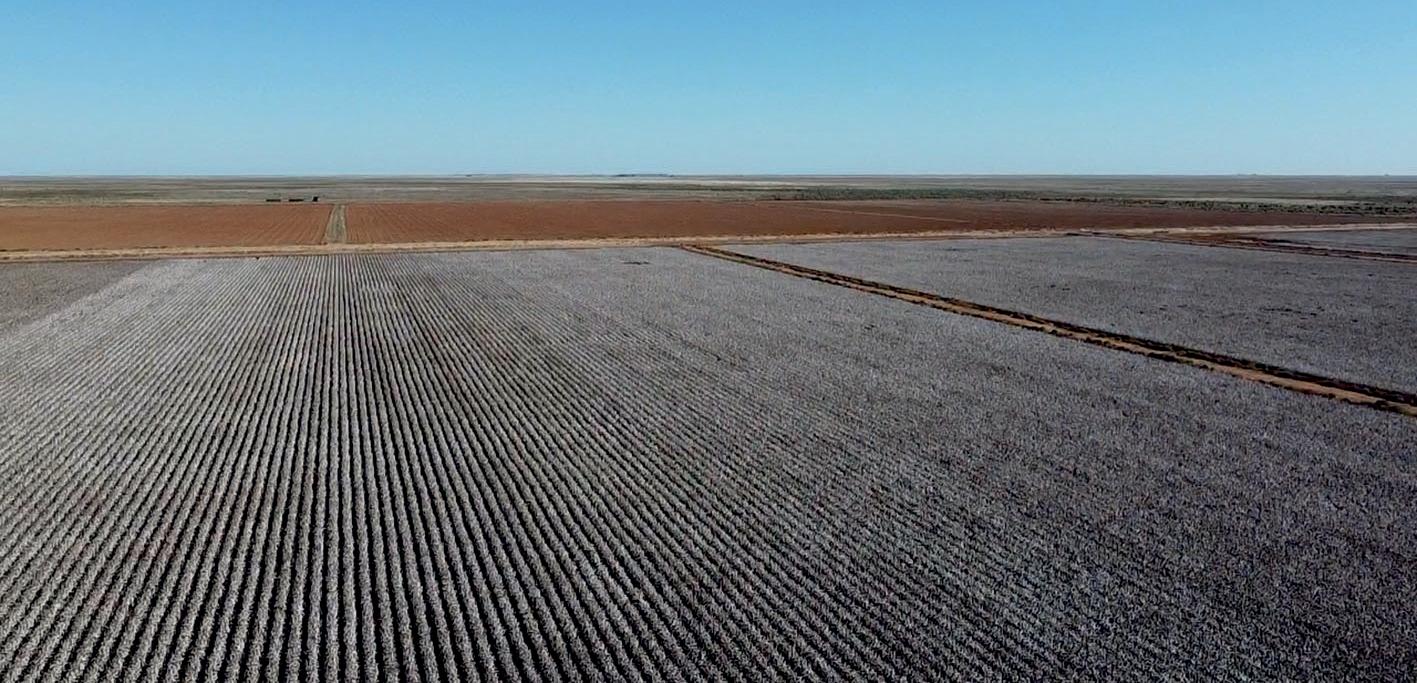
• Bankless Channel Irrigation system is supplied by 2 irrigation bores, recirculation system inplace with lift pumps
• 1043 ML license Lower Lachlan Ground Water Supply Scheme

For Sale by Auction, if not Sold prior.
If you're planning to burn off to get ready for the bush fire season, let us know first. You can now notify us of your planned burn online.


www.rfs.nsw.gov.au/notify
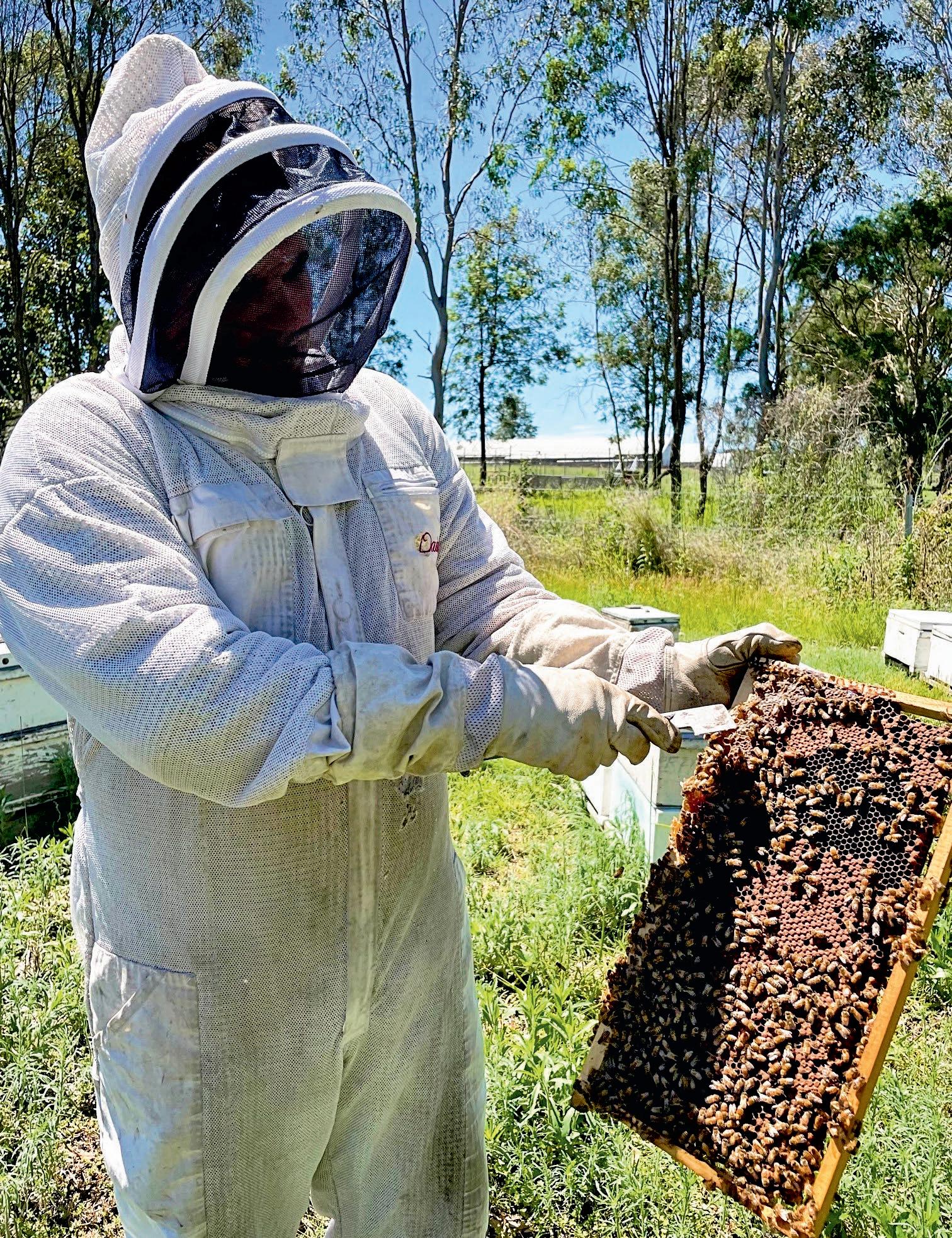
� NSWRURALFIRESERVICE DON'T BE THE FIRE RISK TO YOUR COMMUNITY
Beekeeper Murray Arkadieff searching for propolis on the live hive.
AUGUST Darren Tapper 0438 633 522
AUCTION: 11TH
Antioxidant ‘bee glue’ creates buzz
University of the Sunshine Coast researchers have identified for the first time 16 types of Australian high-grade propolis, or ‘bee glue’, brimming with enough antioxidants and other chemical properties to spark a new national industry for food and health products.
The findings have excited the UniSC team led by chemistry academics Dr Trong Tran and Dr Peter Brooks, who previously collaborated on national research that found exceptional antibacterial activity in Australian manuka honey.

Propolis is a sticky mixture used by honeybees in the construction of their hives. It usually contains beeswax, bee saliva and resin from the native and non-native plants that bees pollinate.
In the Australian beekeeping industry, propolis is regularly discarded as a nuisance product. In countries such as Brazil, China and New Zealand, it is harvested for use in multi-million-dollar food and cosmeceutical industries.
Dr Tran said the two-year collaborative project, which received funding from Hive and Wellness Australia, owners of the Capilano honey brand, and AgriFutures Australia, had found the superior qualities in propolis scraped from honeybee hives across the country, including four in Southeast Queensland*.
Beekeeper Murray Arkadieff, whose hives near Ipswich produced some of the most active propolis samples in the state, said the positive findings provided opportunities for a new revenue stream for Australian beekeepers and more industry jobs.
“This will help to further reinforce the exceptionally high quality of Australian honey and our hive products both in Australia, and internationally,” said Mr Arkadieff.

The paper in Nature Scientific Reports assessed the quality and chemical diversity of Australian propolis from Apis mellifera or European honeybees, common across the country.
Dr Tran said the research confirmed the chemical makeup of 16 propolis samples had more potent antioxidant activity than some well-known international types generating big profits overseas.
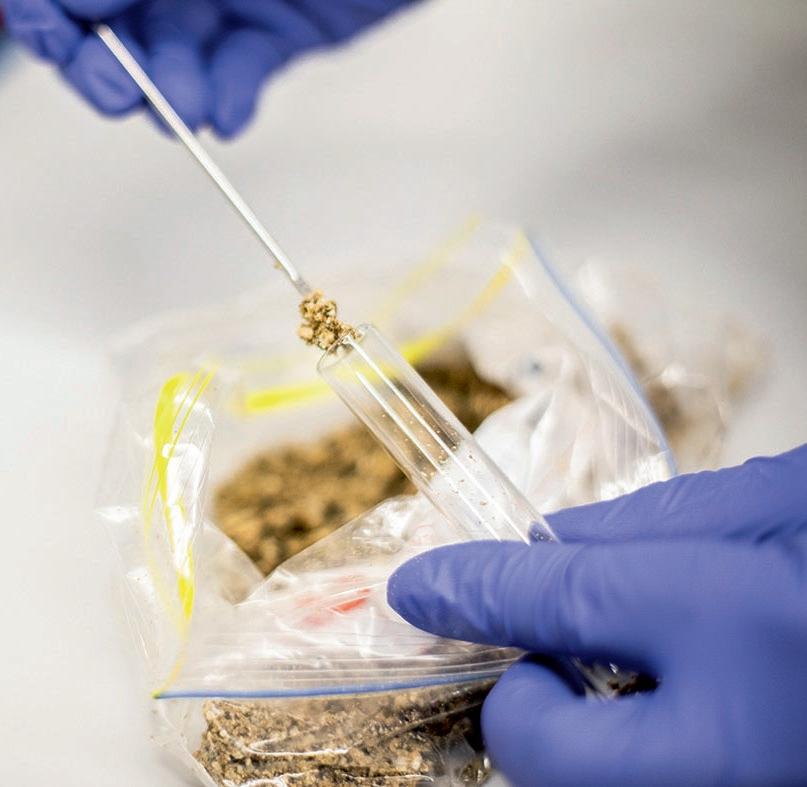
“Established cosmeceutical industries add propolis to products intended to have both cosmetic and therapeutic benefits, such as mouth sprays, soap, toothpaste, dietary supplements and skincare creams,” he said.
“In the food and beverage industry, propolis can be a preservative.”
Dr Tran said propolis had been used in many cultures for centuries as a natural antibiotic, but research papers since the 1990s had increasingly found much more than antimicrobial potential, including the possibility of adjunct treatments for cancers and COVID-19.
Researchers and co-authors from Hive and Wellness Australia said the findings were very encouraging for the beekeeping industry, which currently has 530,000 honeybee hives.
“At the moment, we only have small-scale propolis production, mainly in South Australia,” said Dr Ben McKee, Chief Operating Officer at Hive and Wellness.
“More domestic harvesting would provide extra income for beekeepers and processors while reducing the reliance on imported propolis in manufacturing.
“This research could be a solid foundation to build a new industry across the country.”
The UniSC team recently published three papers on propolis. Dr Tran said the next step would be tracing the plant sources of the samples, to inform plant biodiversity measures and hive locations.
“This study indicates Australia has the capability to produce unique and premium propolis types because of its unique and diverse native flora,” he said.
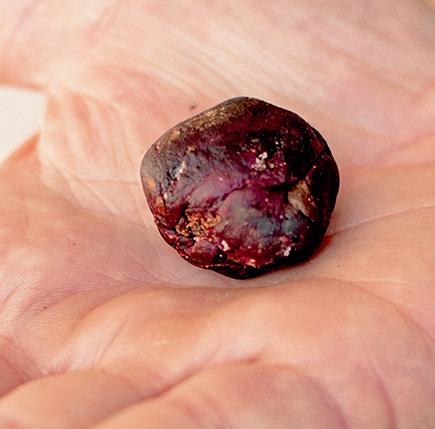
The paper was authored by UniSC’s Dr Tran and Dr Brooks with Chau Tran, Tahmikha Bryen and Dr Simon Williams, and Hive and Wellness Australia’s Jessica Berry, Fiona Tavian and Ben McKee.
It followed an AgriFutures Australia report in 2019 that recommended further research to help Australia grow its propolis production and market. It reported that the farm gate value of propolis production to New Zealand beekeepers was averaging $NZ3.75 million a year.
AgriFutures Honey Bee & Pollination Program Research Manager Annelies McGaw said the findings could strengthen the industry.
“The annual contribution of the honey bee to our economy is $14.2 billion, however over recent years this industry has been severely impacted by bushfires, floods and pest incursions like Varroa mite,” Ms McGaw said.
“Although there is still more work to do to better understand the benefits of propolis, the potential commercialisation could provide a very welcome and timely income stream for Australian beekeepers.”
“This research could be a solid foundation to build a new industry across the country.”
DR TRONG TRAN
A nutrient-rich product discovered in honeybee hives across Australia could generate a new homegrown health industry.
Beekeeper Murray Arkadieff.
AUGUST 2023 FARMtalk • 21
Dr Trong Tran.
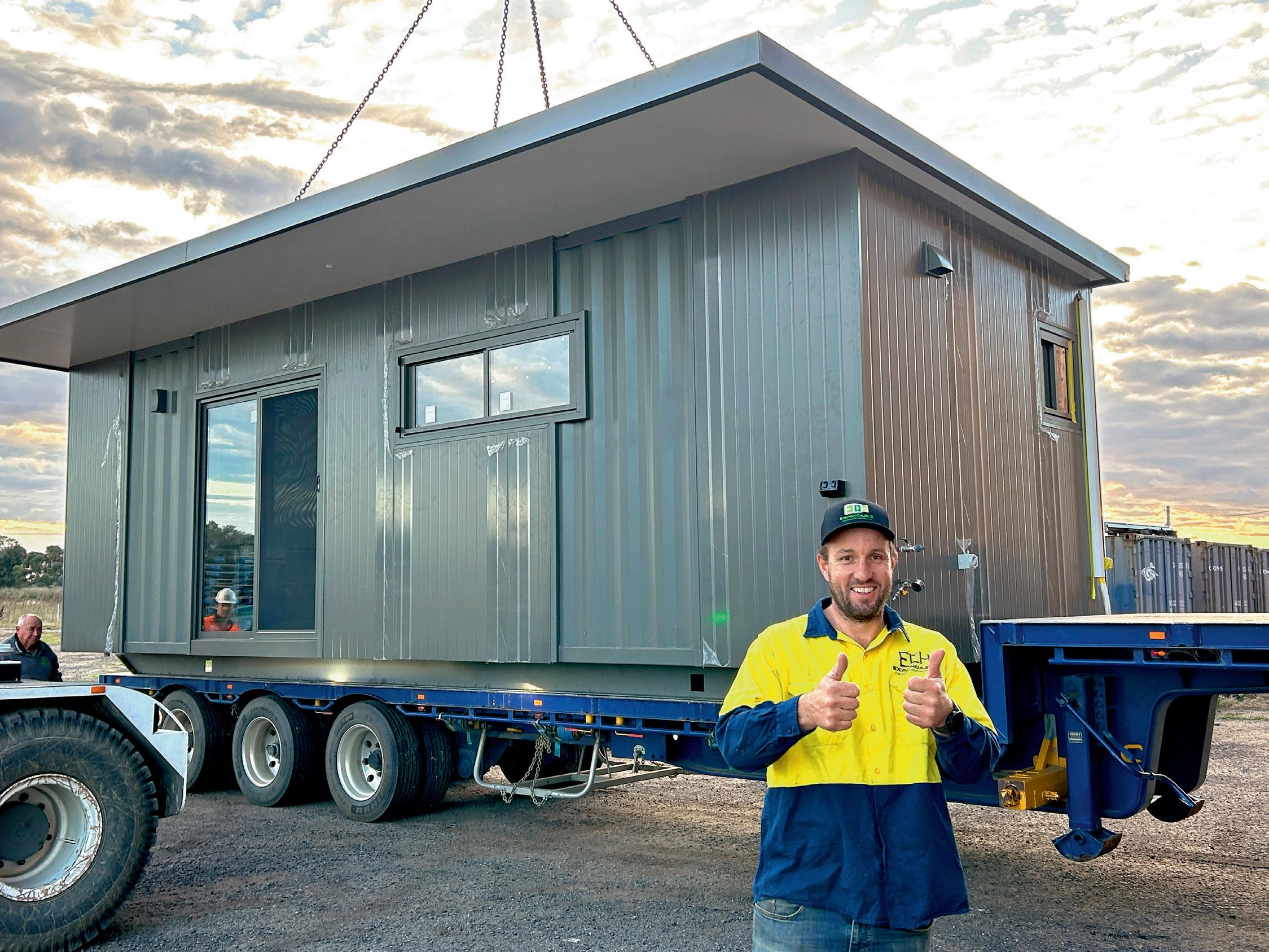

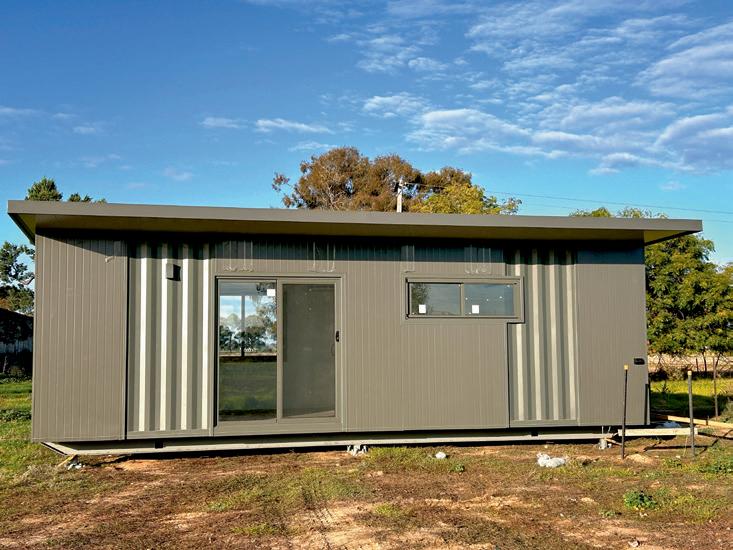
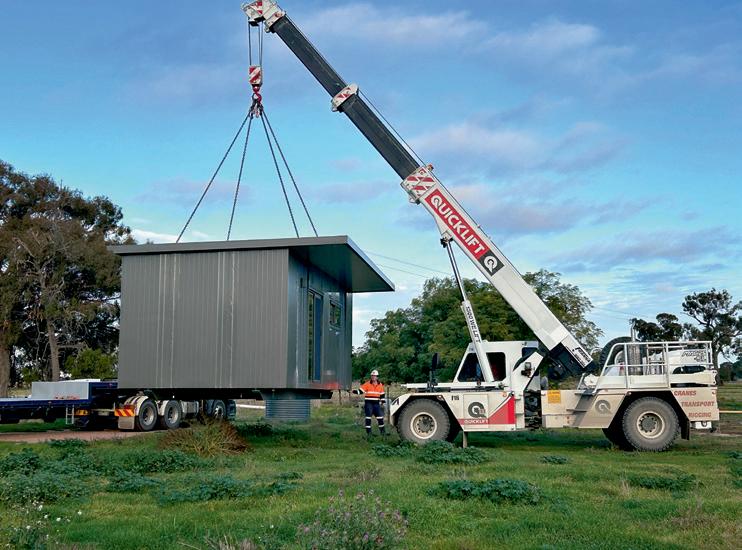
EXPANDABLE Container Homes Pty Ltd HYBRID MODULES Starting from $25,000 Our Hybrid Range: • can provide instant accommodation • is an affordable option • withstands the elements • quality build 1300 821 333 office@expandablecontainerhomes.com.au www.expandablecontainerhomes.com.au Call us now for our range of sizes and prices! A great idea for employers seeking accommodation for their employees.
Low stress stock handling
Have you ever considered the impact your livestock handling methods are having on stock performance, meat quality or even your staff and family coming to help-out in the stock yards with you?
How you handle your stock both in the paddock and, in the yards, can have a significant impact on theirs and your stress levels, time to conduct processing and overall animal performance.
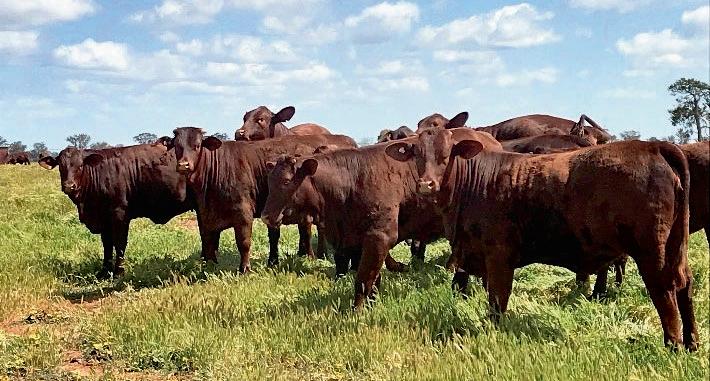
Livestock being herd animals, prefer to stick together as a group, while normal handling processes and drafting stock off will impact an animal’s stress, there is significant background knowledge and research into handling practices which assist in reducing stress and improving animal handling. Such practices are generally referred to as ‘Low Stress Stock Handling’, and there is a whole school around conducting this method of livestock handling correctly.
See it, report it
Frogbit (Limnobium laevigatum) is a floating water weed with small, round glossy leaves.
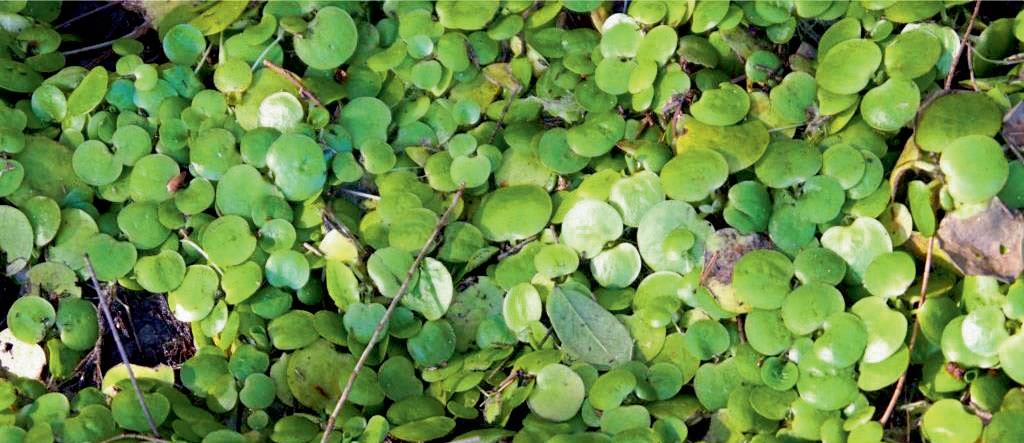
Plants grow very quickly, forming dense mats over water bodies. The weed is deemed prohibited matter, and any evidence of it growing must be reported immediate.
How does this weed affect us?
Frogbit (sometimes call spongeplant) is a floating freshwater plant that spreads quickly and smothers ponds, dams, lakes, rivers and creeks.
It can spread from a tiny piece into a thick floating mat covering the whole water surface, and:
• clog waterways and make the water colder, darker and harder to reach for native plants and animals that use it
• reduce the number of native plants, animals, fish and birds that can live in or near a waterway
• make it hard to use a waterway for fishing, swimming or boating
• hide the view of the water surface, creating a danger by making the water surface look like firm ground.
Training in this area will assist you and your staff in placing yourself correctly to achieve animal movement with minimal force, noise and external ‘mechanisms’. The benefits of this are seen in production gains, meat quality, economic return and staff or family who are not stressed about heading to the stock yards!
Local Land Services and NSW Department of Primary Industries are currently partnering to hold events across the Murray Region FREE of charge to participants. To find out more, contact Rebecca Stacey, SLSO- Mixed Farming on 0436 342 086 or Rebecca. stacey@lls.nsw.gov.au.
Where are you likely to find it?
Look for it in still or slow flowing fresh water - ponds, rivers, creeks, lakes, wetlands and dams.
It is also found in garden ponds and water features, aquariums, and drains and ponds close to public parks.
You may also see it for sale online or at markets (it is illegal to sell it).
What does it look like?
It has smooth, round fleshy green leaves about 4 cm across. The top sides of the leaves are glossy green and the underside of each leaf looks and feels like a sponge (above right).
The leaves can float on the water or stick up on stems when the plants are crowded together.
The plants have hairy branched roots that hang down in the water, and small white flowers in between the leaves.
Contributed by Rebecca Stacey (pictured), senior local lands officer - mixed farming with Murray Local Land Services.
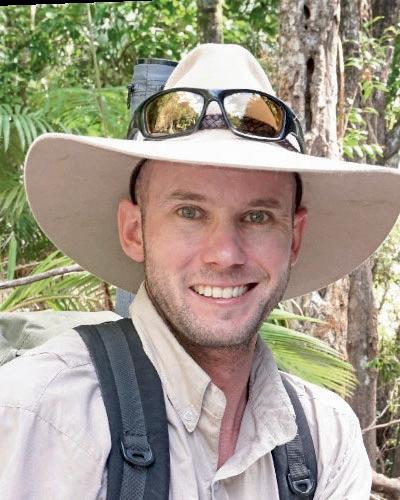
Seen the weed? Call the NSW DPI Biosecurity Helpline 1800 680 244 or Murray Local Land Services (03) 5880 1400.
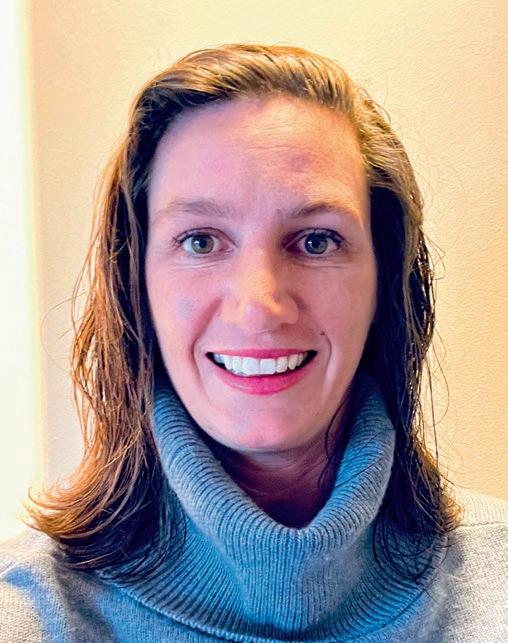 Frogbit (Limnobium laevigatum) is a floating water weed with small, round glossy leaves.
Frogbit (Limnobium laevigatum) is a floating water weed with small, round glossy leaves.
AUGUST 2023 FARMtalk • 23
~ Michael Tweedie is regional weeds coordinator with Local Land Services.

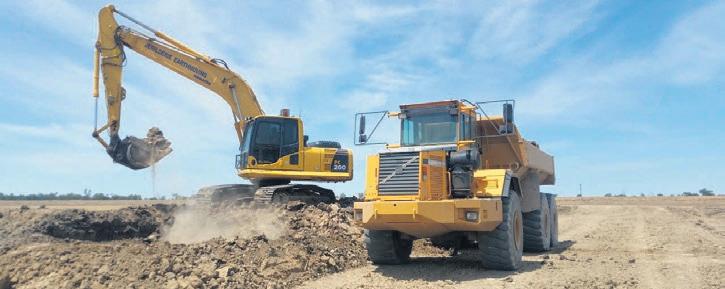
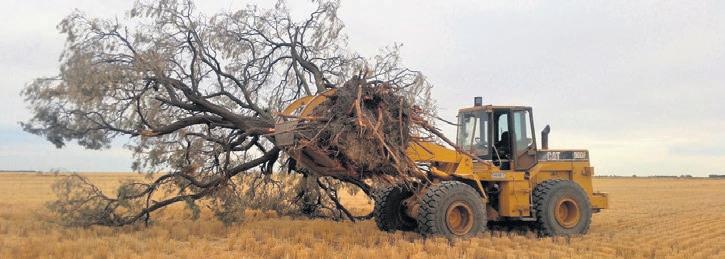
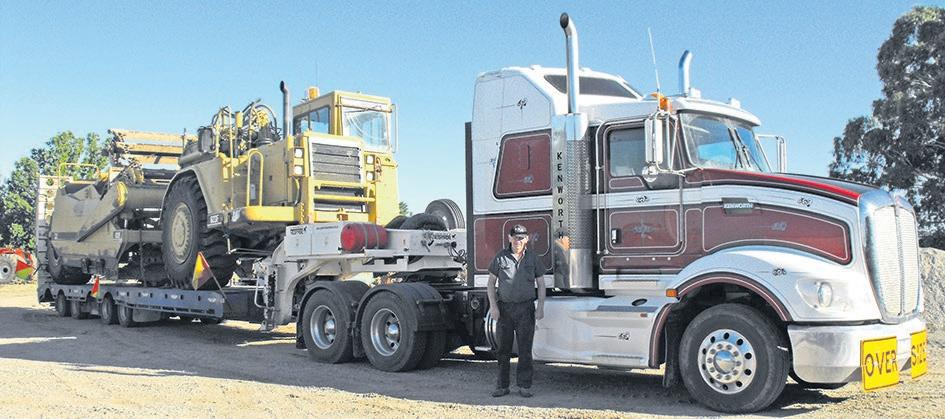



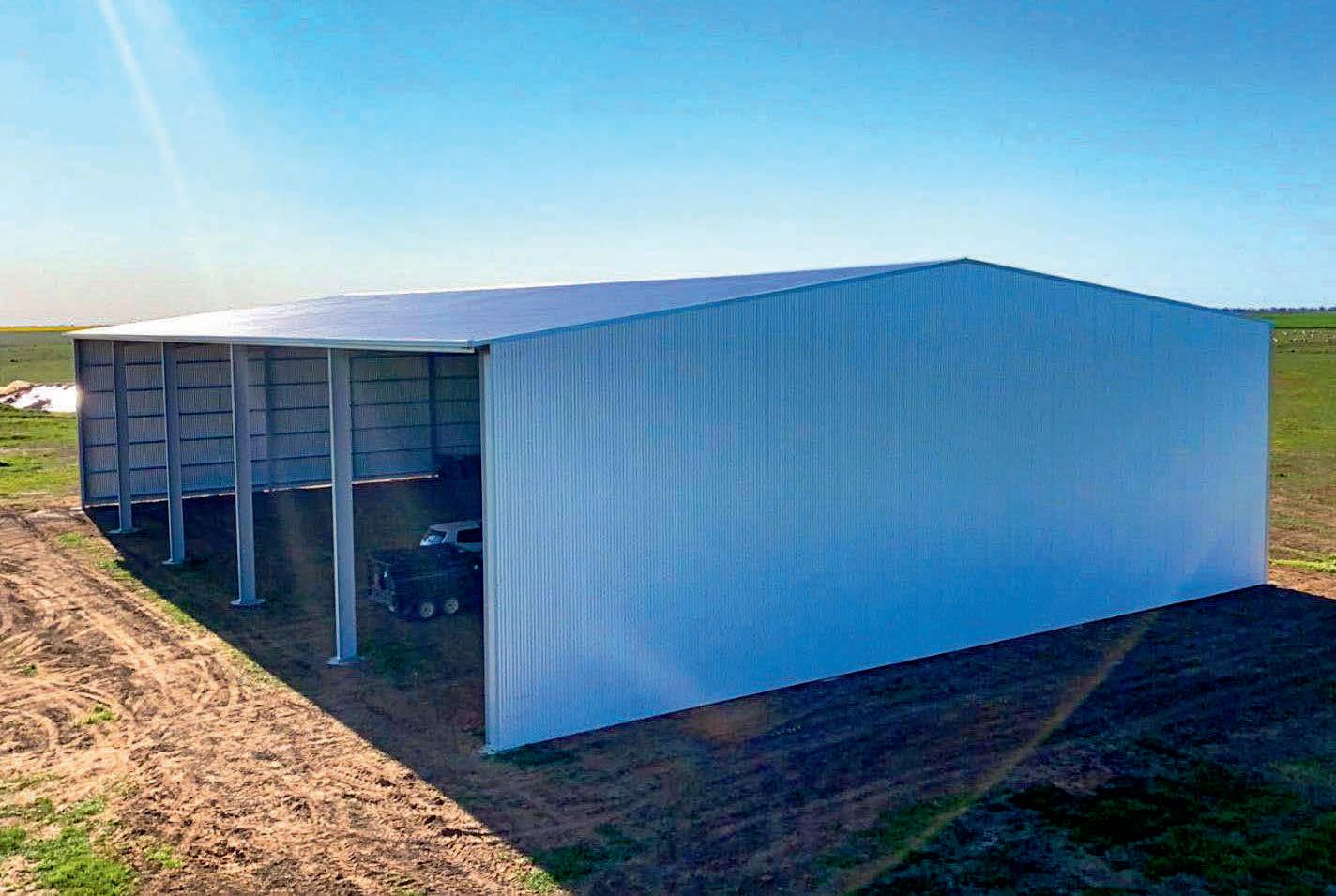
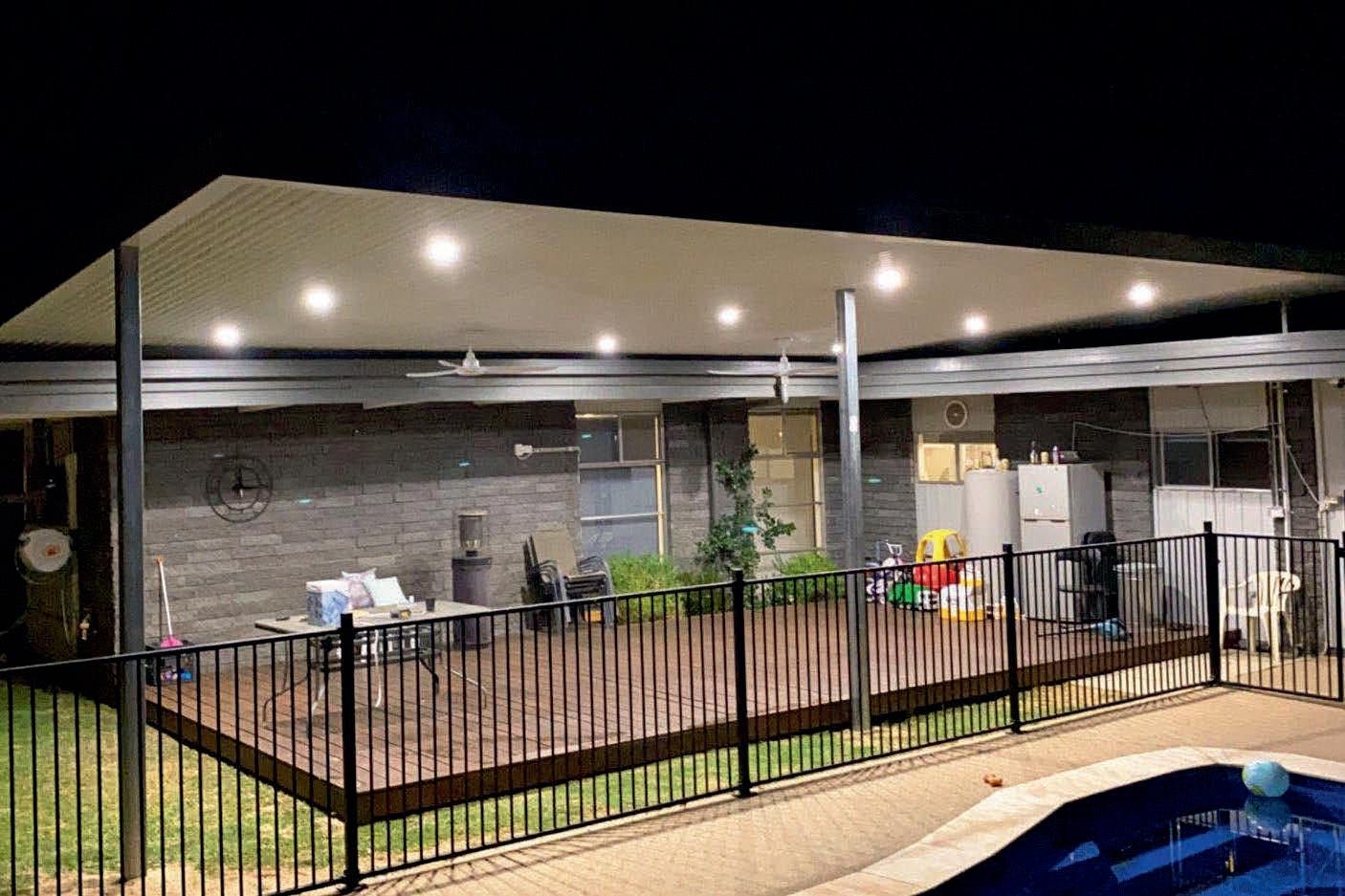
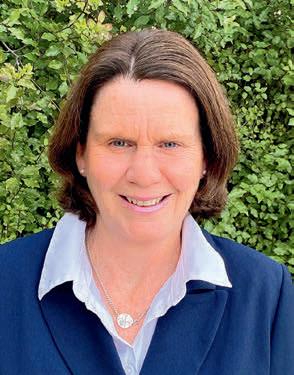
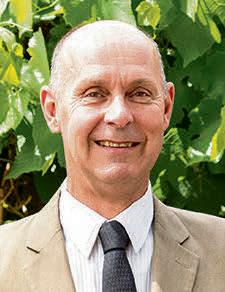
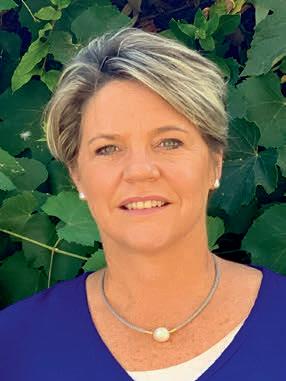
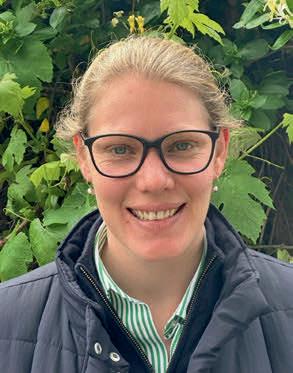
Gary Williams Mobile 0428 845 780 Phone (03) 5886 1765 JERILDERIE EARTHMOVING Available Vehicles Scrapers: Caterpillar 623G, 623B, and 2 x 623F Excavator: 2 x Komatsu PC 200-8. Hidromek 310LC Longreaches: Komatsu 300-8, 18 Meter & Komatsu 220-5, 14 Metre Boom Graders: Caterpillar 160M AWD, 2 x Caterpillar 140H Bulldozers: Caterpillar D7H & Caterpillar D6T with Rake Tractors: Steiger 450 With Laser Buckets - 14 & 16. Case IH Steiger 535 & 600 Loaders: Cat IT 28B Cat 960F Low Loaders: 2015 Quad Axel (with Tandem Dolly), SES Tri-Axel Water Tanker: 45,000 Litres Trucks: x3 Kenworth Prime Movers T404, T604, & T609 40 Tonne Dump Truck Roller: Dynapac CA602D (smooth drum & pad foot) For all your earthmoving needs great and small Huge fleet with endless applications available for hire. Specialist in Structural Steel Fabrication MAKING A WELD OF DIFFERENCE Davey Leetham 0438 647 027 davey@bltfab.com.au Scissorlifts & Telehandler hire available Contact our friendly team to see how we can help you! (03) 5877 7011 • results@peppin.com.au • 132-136 End Street, Deniliquin Assisting families with communication and strategies • Family Business: entering, changing, retiring, separating, succession • Family Communication Strategies • Estate Planning • Aged Care Planning • Centrelink • Government Programs • Special Disaster Grants • Government Loans Kate Paton Rob Brown Marie Muldoon Felicity Dye We help get things done!
Transformations through ranger program
The program is designed to enhance Aboriginal people’s connection to Country and provide meaningful career pathways through formal training and implementing learnings.
Central West Aboriginal Rangers have been putting their knowledge into practice on a travelling stock reserve close to Coonabarabran with high biodiversity and Aboriginal cultural values.
The reserve is being transformed into a meeting place for the community and outdoor space for practicing traditional Aboriginal customs.
The site is being fenced off to protect the high value conservation area and cultural heritage sites present through restricting unauthorised vehicle access which will reduce illegal dumping and the general degradation of the site.
The project area will be revegetated, maintained and preserved as a significant cultural space for the whole community.
Local Land Services business partner Aboriginal cultural engagement Graham Kelly said the program has upskilled participants giving them qualifications and experience through on-ground projects.
“The guys are doing their Certificate III in Conservation and Ecosystem Management and then get to apply the skills they have learned through projects like this where they are transforming the reserve into a meeting place for people to learn the ways of our mob,” Mr Kelly said.
“The rangers have created areas for traditional men’s business and women’s business with dancing circles and yarning circles.
“We’ve had a number of gatherings here and I’m getting plenty of enquiries from people now wanting to use the space.”
In the Murray region, Michael Grant, an Aboriginal man from Thwutti and Mathiyeal Country, has been working as a conservation field support officer based in Deniliquin for the past 18 months.
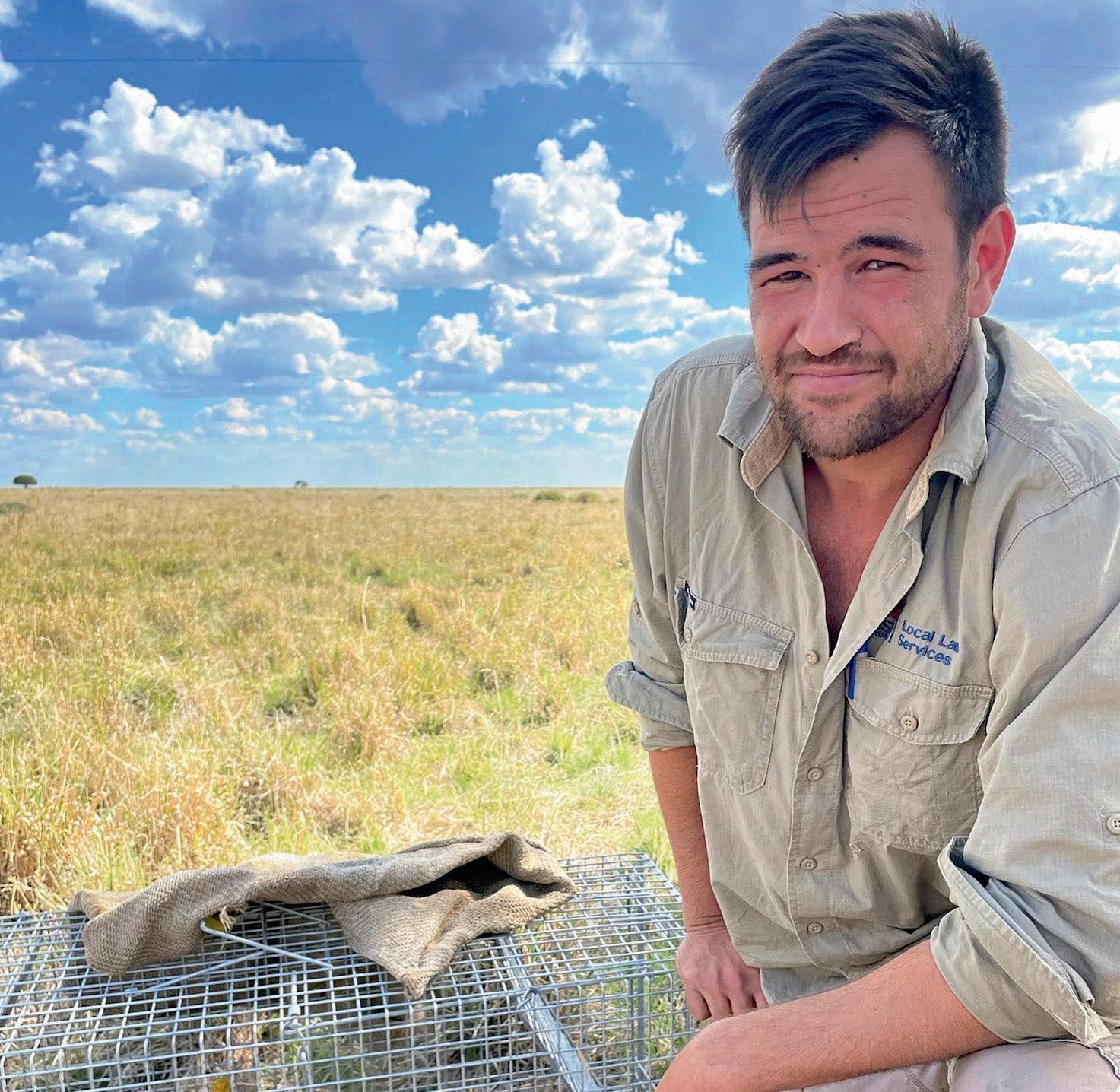
His role also involves managing flora and fauna pests on travelling stock routes.
“Our team in Deniliquin has located an Aboriginal burial site along a local travelling stock route, and they are now working to fence the site to minimise any damage from travelling stock, but also keep vehicles and rubbish off the site,” he said.
Michael said working in his role helps him contribute to his regional community.
“I work with local land holders to help them better manage and deal with pests and weeds, whilst also keeping fences on stock routes in good condition,” he said.
“I also manage drovers and their cattle while they are on travelling stock reserves, including maintaining cattle holding yards and making sure there is a secure water source for them while they are travelling through the area.”
Michael said the Aboriginal Rangers work on different projects across Local Land Services, ranging from weed and pest control projects to revegetation and erosion control.
“Throughout the program, each team is given a task to create and manage a project within their respective regions.
“The program aims to provide meaningful employment for local Aboriginal trainees to upskill
them, help them gain exposure and development within a government agency, and provide a potential career pathway in Local Land Services.
“The most rewarding part of my role is representing Aboriginal people in a government agency and working with local organisations - both Indigenous and nonIndigenous - to improve the overall health and wellbeing of our surrounding lands and town.
“Being in a role that contributes and helps communities is especially important to me. Healthy Country equals healthy people and communities.
“The Aboriginal Ranger Program aims to help upskill and employ local Aboriginal people to enhance our local Indigenous and non-Indigenous communities by working together to enhance the lands and keep a healthy and productive ecosystem,” Michael said.
For further information, contact Local Land Services on 1300 795 299.
The Local Land Services’ Aboriginal Ranger Program was launched in July 2022 and is being delivered across the Central West, Murray, Riverina and North West Local Land Services regions.
AUGUST 2023 FARMtalk • 25
Michael Grant works as a conservation field support officer for Local Land Services.


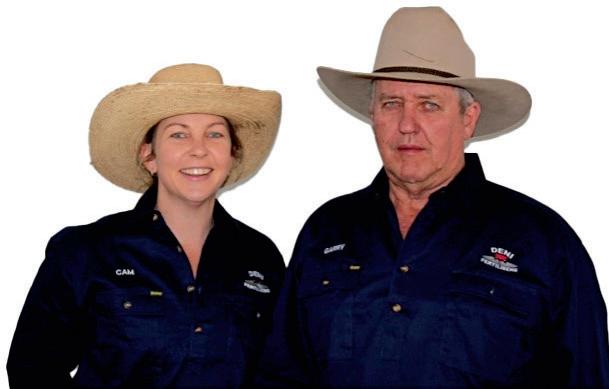
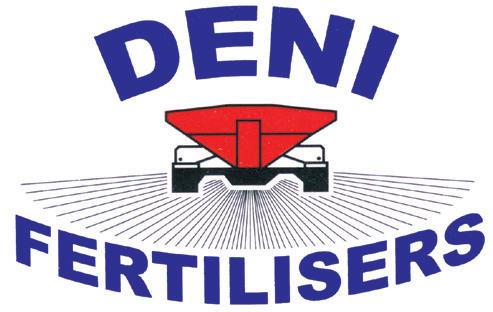
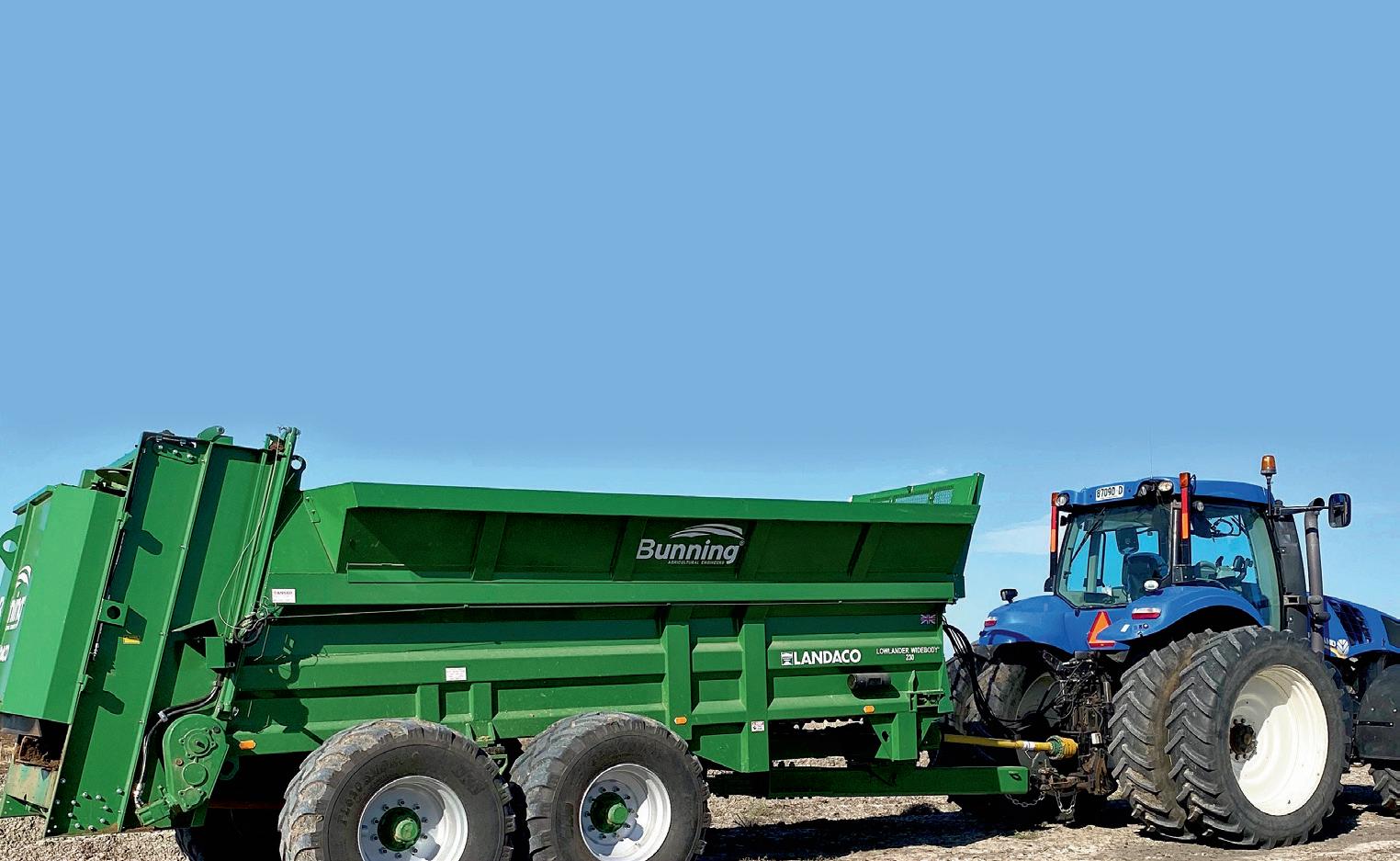


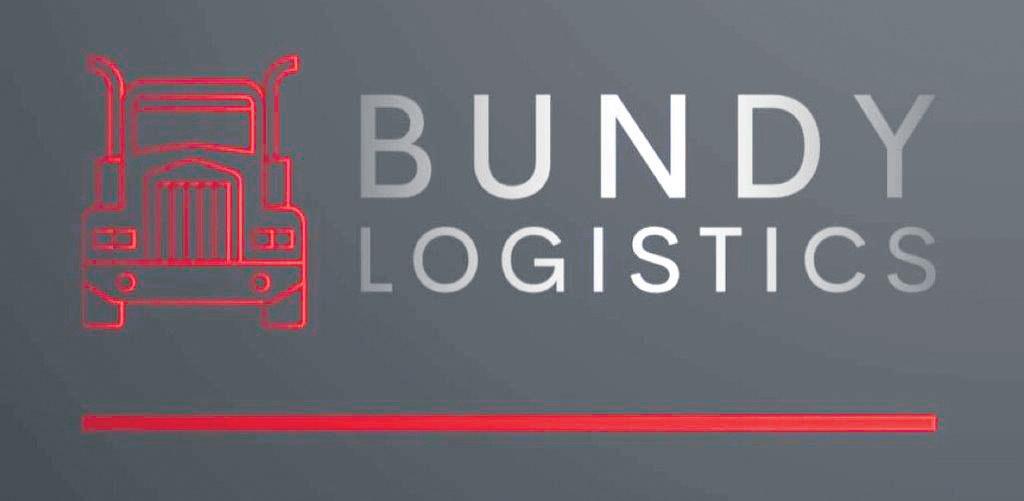
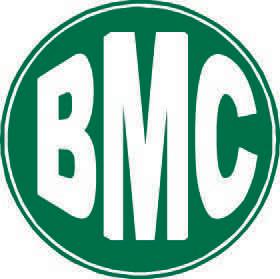


DENILIQUIN TREE SERVICE - TREE REMOVAL - TREE MAINTENANCE & TRIMMING - STUMP REMOVAL & GRINDING - MULCHING - AERIAL RIGGING / LIMITED ACCESS - TREE HEALTH & HAZARD ASSESSMENT - PEST & DISEASE IDENTIFICATION & MANAGEMENT - REMOTE AREA / TRAVEL SPECIALIST - 24 HOUR EMERGENCY TREE SERVICE admin@deniliquintreeservice.com FREE QUOTES / FULLY INSURED 0418 572 787 Garry Brose and his daughter Camilla Lowe, along with existing Deni Fertilisers staff look forward to meeting you and continuing the high level of service you’ve been accustomed to over the last 17 years. NEW MANAGEMENT Fertiliser, Gypsum and Lime Spreading Contact us on 0427 267 222 or deni.ferts@bigpond.com or call in and see us at 160 Napier Street, Deniliquin 0437 570 364 Eco Manure Solutions Lance Gardiner 0437 570 364 lancegardiner55@outlook.com Lance Gardiner • Ph 0437 570 364 Email lancegardiner55@outlook.com • 160 Napier St, Deniliquin. Eco Manure Solutions Lance Gardiner 0437 570 364 lancegardiner55@outlook.com For all your Eco Manure Solutions and Spreading Low Cost NLIS Approved Ear Tags Order at www.aaatags.com or Phone 0419 608 570 Strip Tags Clip Tags 2023 BOOK YOUR UREA DELIVERIES NOW. Special rates for July and August across the Riverina. Delivery available in load configurations of - Single, B Double up to 44t, A Double up to 57t. Call Candice 0457 101 833 or John 0439 790 116 Bundy Logistics operators are accredited with TMA. Brian McCleary & Co Accountants FRIENDLY, ACCESSIBLE, CONFIDENTIAL SERVICE, INCLUDING • Income Tax Returns • GST & BAS • Business st art up • Audits • Cloud accounting software • Establish a SMSF • Single Touch Payroll ready solutions Registered Tax Agents Registered Company Auditors SMSF advisers 126 End Street, Deniliquin. Phone 5881 7999 admin@brianmccleary.com.au Offices located in Deni, Barham, Hay, Echuca, and Rochester.
Winter Reading
THE PLAIN CAKE APPRECIATION SOCIETY
Tilly Pamment
Welcome to The Plain Cake Appreciation Society. Where 52 simple, seasonal cake recipes inspire you to pause throughout the year, bake something delicious, and reflect on all that’s good in your world. The conversations and comfort that come from what home baker and photographer Tilly Pamment calls ‘little pockets of cake calm’ become nourishment for your soul to carry you through into the next week. Find your own slice of joy in the Weekday Lemon Cake or Raspberry-studded Tea Bars at the height of a breezy summer, or the Rainy Day Chocolate Loaf and Ginger and Rose Madeleines for when the weather sets in. Uncomplicated and easy to make, these recipes will provide delicious inspiration all year round.

$39.99
GROWING GRAPES MIGHT BE FUN

Deirdre Macken
I imagined lounging on a veranda overlooking folds of hills striped with vines. I’d be clothed in linen and surrounded by friends. On the table would be tumblers of wine we’d picked in last year’s harvest. Then we arrived at Cockatoo Hill and discovered a dump. When Deirdre and her husband Roger decide to turn a sheep paddock into a vineyard, they are following the centuries-old tradition of family winemaking. Bit by bit they clean up the land, plant vines, protect them through storms and drought and turn a shack into a cottage. Slowly they start to read the landscape, appreciate the talents of locals and learn what to do when a snake passes by. This is a humorous memoir with larger-than-life characters, hard slog and sweet triumph. It is also a story of a deepening awareness of our connection with the land and the rhythms of farming life.
$34.99
A FARMING LIFE

Liz Harfull
Bestselling author Liz Harfull shares fascinating true stories of rural Australian women, showcasing the passion, tenacity and resilience required to make a life on the land. Making a living on the land in Australia can be tough at the best of times, but the last few years of seemingly endless droughts, floods and bushfires - not to mention a global pandemic - have made it even more difficult. A Farming
Life shares the uplifting stories of women from six rural families as their resilience is tested by personal loss, illness, fractured relationships, natural disasters and the challenges that come with working in a traditionally maledominated world. These women are all hands-on farmers - in fact, most are responsible for managing their own farms - and their defiance, tenacity and genuine humility shines through, as does their hope for the next generation of young women already lining up to follow in their footsteps. Skilfully woven together by veteran storyteller Liz Harfull, these accounts are heartwarming and powerful examples of resilience in action, at a time when many of us are searching for inspiration.
$34.99
THE FLYING VET
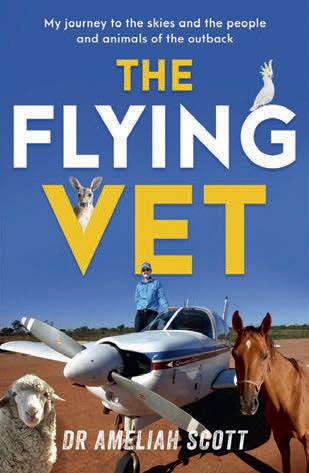
Dr Ameliah Scott
Ameliah isn’t your average vet - flying solo over a staggering territory of 200,000 square kilometres of red dirt and bush to tend to animals of all shapes and sizes, she’s a rare combination of female flying vet and fifth generation farmer in remote Australia. She brings much needed solace, care and reassurance to remote farming communities in the heart of the country, while also raising her own young family. With charm, honesty and wit, Ameliah tells stories from a life on the road and the skies, from attending the School of the Air and becoming a vet, to operating her mobile service in some of the most remote parts of the country. Her story spreads as far as her clients are scattered across the outback, from far western New South Wales to northern Victoria, from the southwest of Queensland to eastern South Australia, treating valuable stock animals and beloved pets, and providing a precious lifeline for their owners.
$34.99
These great titles and more available instore. We post direct to you, contact us today to discuss getting your copies posted* *Postage and Handling fees apply.
Deniliquin Newsagency Office Choice
249 Cressy Street, Deniliquin. Phone 5881 2080. www.deni.com.au
The HWMHS students enjoyed another successful showing at the National Dorper and White Dorper Show recently (from left) Emily Shea, Hannah Edmonds, Oliver Creighton, Poppy Barnes, Kodi Scott, Chrissy Murray, Molly Edmunds, Evelyn Creighton, Emily Caughey, Daniel Wilson, Mackenzie Dawson, Issy Murray, Jolene Masters, Tilly Weeks and Robert Gore. Image: Supplied HWMHS.
Success at Bendigo
Hay War Memorial High School’s Aberdine Dorper and White Dorper Stud continues to excel at regional shows.
The students travelled to Bendigo to take part in the National Dorper and White Dorper Show and Sale at the Australian Sheep and Wool Show in Bendigo recently.

In the junior judging Poppy Barnes placed first in the 13-18 handler competition.
Fellow students Emily Caughey (runner-up), Chrissy Murray (third), Evelyn Creighton (fourth), Mackenzie Dawson (fifth) and Daniel Wilson (sixth) all placed in the top ten.
Hannah Edmunds was the runner-up in the under 13-year-old judging competition.
Sheep Show results: Second place to Tranquility, handled by Emily Caughey.
Second placing to Amythyst (handled by Molly Edmunds).
Third placings to Anther (handled by Chrissy Murray), Sheba (handled by Mackenzie Dawson), Snowflake (handled by Evelyn Creighton) and Thorn (handled by Oliver Creighton).
FARMtalk
• Get in touch and give us a tip of a great story idea.
• Contribute an article: If you are an expert in your field then contributing once off, or regularly, is a great way to get started in our FARMtalk magazine. Contact Zoe McMaugh at farmtalk@denipt.com.au or 03 5881 2322.
• Become an author: FARMtalk is open to occasional contributors who are experts in their field or authorities on a subject or area. Once you have contributed an article, and the editorial team have approved you, we can set you up with a regular column to contribute. We would love to hear from you. Contact Zoe McMaugh at farmtalk@denipt.com.au or 03 5881 2322.

welcomes community contributions from farmers, experts and professionals who make their living and life on the land. If you would like to contribute, there are several ways to do so.
AUGUST 2023 FARMtalk • 27


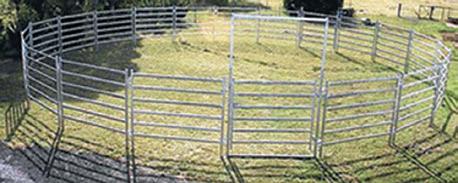
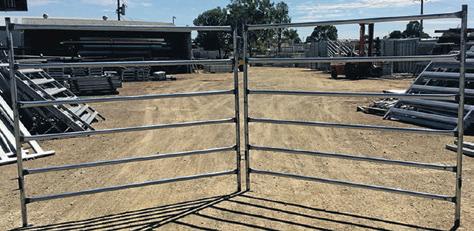
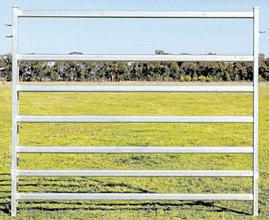
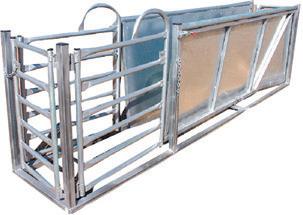
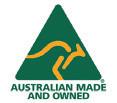


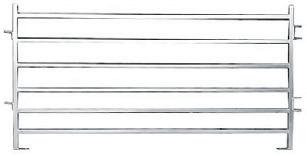
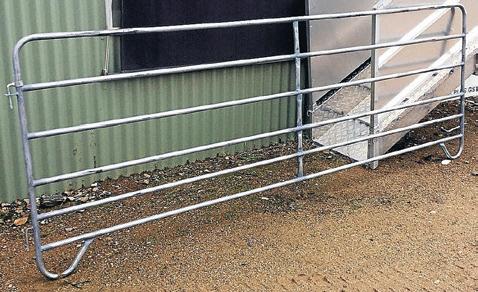


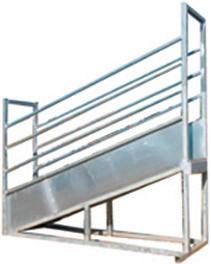




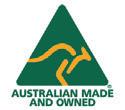
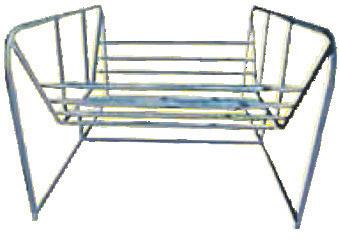

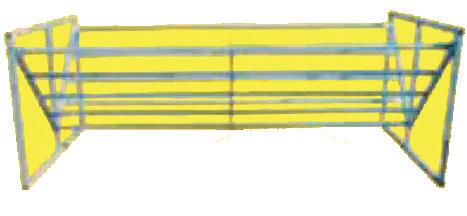

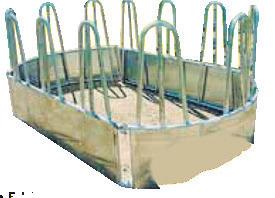
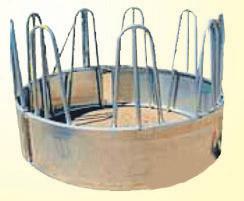

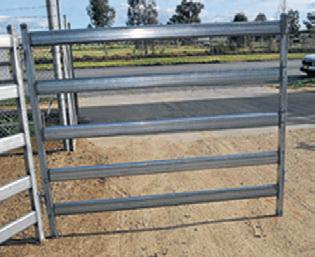

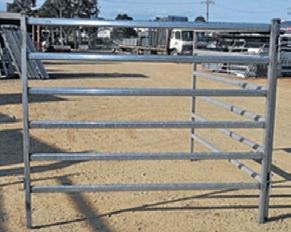
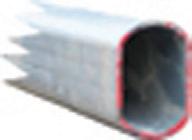
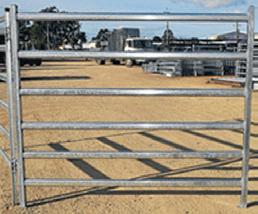


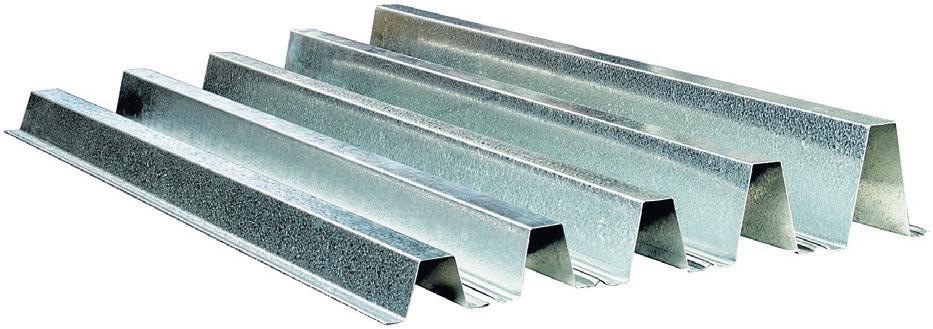
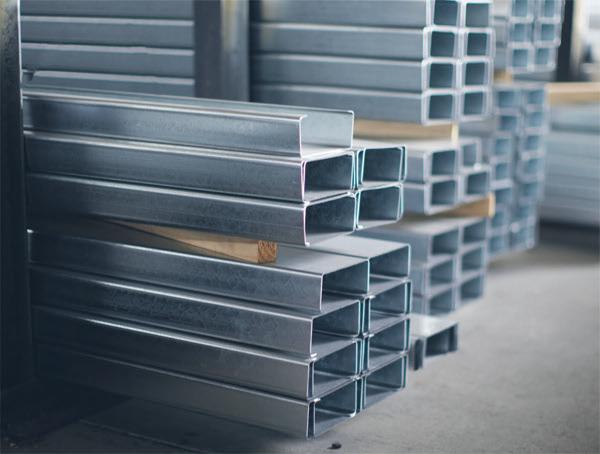
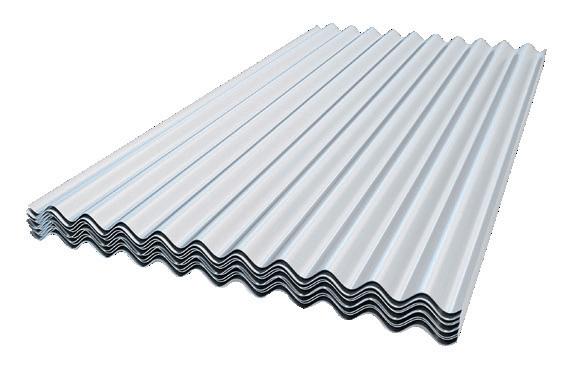
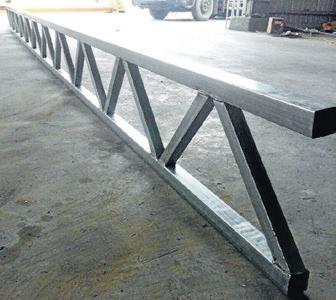


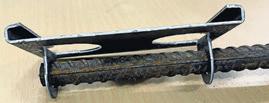
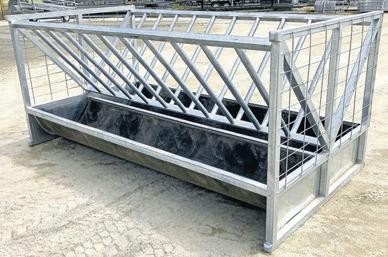










Cnr Wakool Road & Kelly Street, Deniliquin Ph: (03) 5881 5541 Mobile: 0427 203 334 Fax: (03) 5881 6146 RM6942767 JULY SPECIALS 2023 KIT INCLUDES • 21 - 2100 X 1800 40-OD Gal Panels • 1 - Ride Through Gate in Frame • 44 - Joining Pins 15M HORSE ROUND YARD KIT $2,550 each $106 each $138 each HORSE/CATTLE BUDGET PANEL Crazy Price • 6 Rail 40-OD • 2100 W x 1800 H • Fully Galvanized • Pins Included • 7 Rail • 2100 W x 1800 H • 60/30 Oval Rail • Galvanized 3-WAY ADJUSTABLE SHEEP RACE • Adjustable Sides • Fully Galvanised • Australian Made $2,550 • Fully Galvanised • 3.15m Long x 600mm Wide (Internal) • Walkway & Handrail • Fully Sheeted Sides $2,365 each ADJUSTABLE SHEEP LOADING RAMP HEAVY DUTY SHEEP PANEL • 1100 X 2900 • 60 X 30 Rail • 6 Rail • With Pins $139 each NEW BUDGET SHEEP GOAT PANEL crazy price • 2900 Long x 1100 High • 7 Rail 250D Galvanized • With Pins $106 ACCESS GRID • 3.25m x 2m • Heavy duty construction $2,420 each CATTLE LOADING RAMPS • All Galvanised Construction • Mesh Floor • Australian Made $3,120 Adj Non Adj $2,365 ACCESS GRID ENGINEERED • 4m x 2m • Engineered 20T per axle • Heavy duty construction $2,950 each CATTLE CRUSH Budget $4,230 Economy $5,260 Vet $5,960 ROUND BALE CRADLE FEEDER $850 each • Fully Galvanised • Heavy duty construction • Australian made • Suits round bales SQUARE BALE CRADLE FEEDER $850 each • Fully Galvanised • Heavy Duty Construction • Australian Made • Suits Big Square Bales SQUARE BALE FEEDER ROUND BALE FEEDER • 5ft X 9ft • To Suit 8ft X 4ft square bales • Heavy Duty. Made from 33 OD Pipe & Sheeted • Fully Galvanised $780 each • 5ft Diameter • To suit Round Bales • Heavy Duty. Made from 33 OD Pipe Sheeted • Fully Galvanised $600 each SUPPLEMENT FEEDER • 2.4m long • 400mm tray • Folding lid $ each BUDGET CATTLE/HORSE PANELS • 2100 Wide x 1650 High • Galvanised • 5 Rail 60 x 30 Oval Rail $106 each PREMIUM 60X30 RAIL • 2100 Wide x 1800 High • Galvanised • 6 Rail 60 x 30 Oval Rail $123 each PREMIUM HEAVY 80X40 RAIL • 2100 Wide x 1800 High • Galvanised • 6 Rail 80 x 40 Oval Rail $140 each $1,940* RAISED SQUARE BALE FEEDER CRADLE • Fully galvanised • Heavy duty • Rubber tray to catch feed • Australian made 40mm x .48 - 7.5m $26.00 50mm x .75 - 7.5m $46.40 64mm x .75 - 7.5m $52.50 75mm x .75 - 7.5m $58.90 96mm x .75 - 7.5m $73.60 120mm x .75 - 7.5m $92.30 Stock Lengths as Listed or Order cut to your Length TOP HATS C/Z100 - 15 $10.60 L/M C/Z150 - 15 $14.20 L/M C/Z200 - 15 $17.60 L/M Ordered cut to Length and Punched, No extra cost or we keep Standard Lengths of C-Purlin in Stock at 6.1m, 7.62m, 9.14m C & Z PURLINS ROOFING IRON COLORBOND $16.50 L/M Ordered cut to Length in your colour ZINCALUME $12.50 L/M Ordered Cut to Length ALUZINC CORRUGATED STOCK LENGTHS 2440m (8 foot) $29.75 ea 3050m (10 foot) $37.20 ea 3660m (12 foot) $44.65 ea 4270m (14 foot) $52.10 ea 4880m (16 foot) $59.50 ea 5500m (18 foot) $67.10 ea 6400m (21 foot) $78.08 ea 7620m (25 foot) $91.45 ea CHEAP GALVANISED TRUSS CHEAP GALVANISED TRUSS GARDEN EDGING & CLIPS • 300mm deep • 6m long • 30x30 chord • 25x25 webbing • 400mm deep • 8m long • 50x50 chord • 40x40 webbing $240.00 each $330.00 each 100 x 3mm x 4m long $50 100 x 5mm x 6m long $68 300 mm Pins $1.00 ea Clips $3.00 ea each Bomen - Ph: (02) 6921 9119 Fax (02) 6921 4404 Deni - Ph: (03) 5881 5541 Fax (03) 5881 6146 Coolamon – Rural Supplies – Ph: (02) 6927 3024 Fax (02) 6927 3005 * all prices are quoted inclusive of GST COMBO SHEEP/CATTLE PANEL SHEEP CATTLE August Specials
















 Adrienne Hartnett CONTRIBUTOR
Leesa Muir GENERAL MANAGER & ADVERTISING
Jennifer Ho TRAINEE GRAPHIC DESIGN
Rebecca Flisher CREATIVE MANAGER
Zoe McMaugh CONTENT MANAGER
Kimberly Grabham CONTRIBUTOR
Sam Wake ADVERTISING
Adrienne Hartnett CONTRIBUTOR
Leesa Muir GENERAL MANAGER & ADVERTISING
Jennifer Ho TRAINEE GRAPHIC DESIGN
Rebecca Flisher CREATIVE MANAGER
Zoe McMaugh CONTENT MANAGER
Kimberly Grabham CONTRIBUTOR
Sam Wake ADVERTISING






































 Helen Dalton MP for Murray
Helen Dalton MP for Murray




























































 Frogbit (Limnobium laevigatum) is a floating water weed with small, round glossy leaves.
Frogbit (Limnobium laevigatum) is a floating water weed with small, round glossy leaves.
































































